
Fantastic Art - II
Roland Topor
1938 – 1997

Roland Topor
(7 January 1938 – 16 April 1997) was a French illustrator, cartoonist, comics artist, painter, novelist, playwright, film and TV writer, filmmaker and actor, who was known for the surreal nature of his work. He was of Polish-Jewish origin. His parents were Jewish émigrés from Warsaw, Poland. He spent the early years of his life in Savoy, where his family hid him from the Gestapo.
Roland Topor's parents came to France in the 1930s. In 1941 Topor's father, Abram, along with thousands of other Jewish men living in Paris, were required to register with the Vichy authorities. Topor's father was subsequently arrested and interned in a prison camp at Pithiviers, where inmates would be held before being sent to other concentration camps, usually Auschwitz. Of the thousands who were sent to Pithiviers only 159 survived. But Topor's father, Abram, managed to escape from Pithiviers and hide in an area south of Paris.
While his father was in hiding, Topor's landlady would confront the children, Topor and his older sister Hélène d'Almeida-Topor, and try to cajole them into giving away the location of their father. The landlady did not succeed. Then in May 1941 a neighbor tipped off the Topor family that the French police along with the Gestapo were going to search the entire building. So the family fled to Vichy France. In Savoy, four-year-old Roland Topor was placed in a French family, was given a false name, and took on the identity of a Catholic schoolboy.
The family survived, and in 1946 they sued the landlady to have their belongings returned, and to be allowed to resume living in their former apartment. The court ruled in their favor, they returned, and soon were once again paying rent to the landlady who had previously tried to have them apprehended.
The night before he died of a cerebral hemorrhage, it is reported that he couldn't sleep, and instead spent the night visiting Parisian cafes, enjoying Cuban cigars, and drinking Bordeaux wine.

Roland Topor

Roland Topor

Roland Topor


Roland Topor
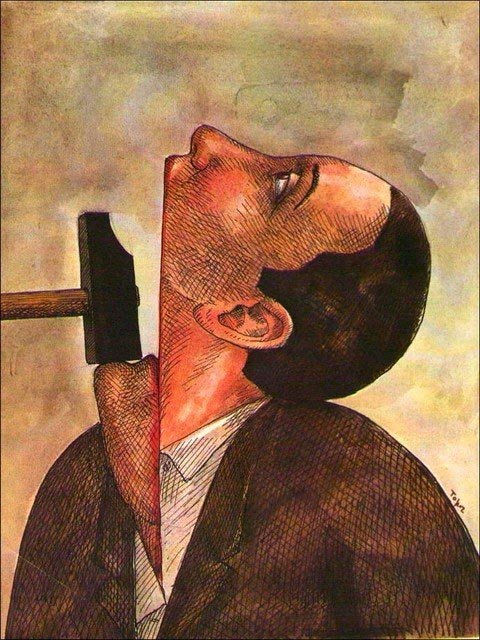
Roland Topor

Roland Topor
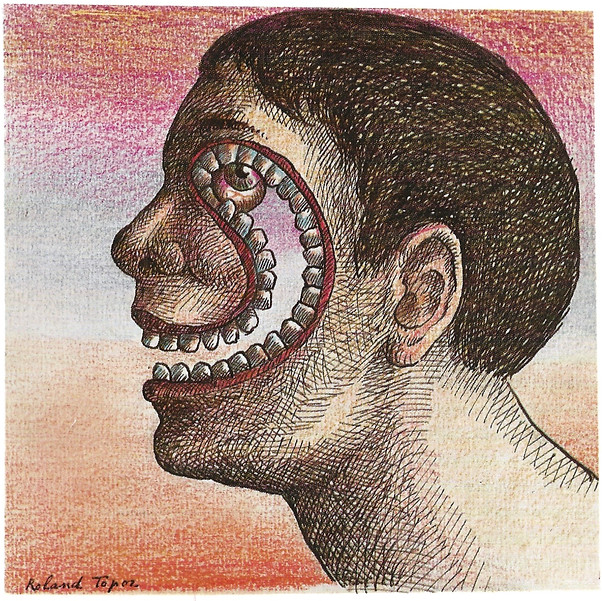
Roland Topor

Roland Topor

Roland Topor
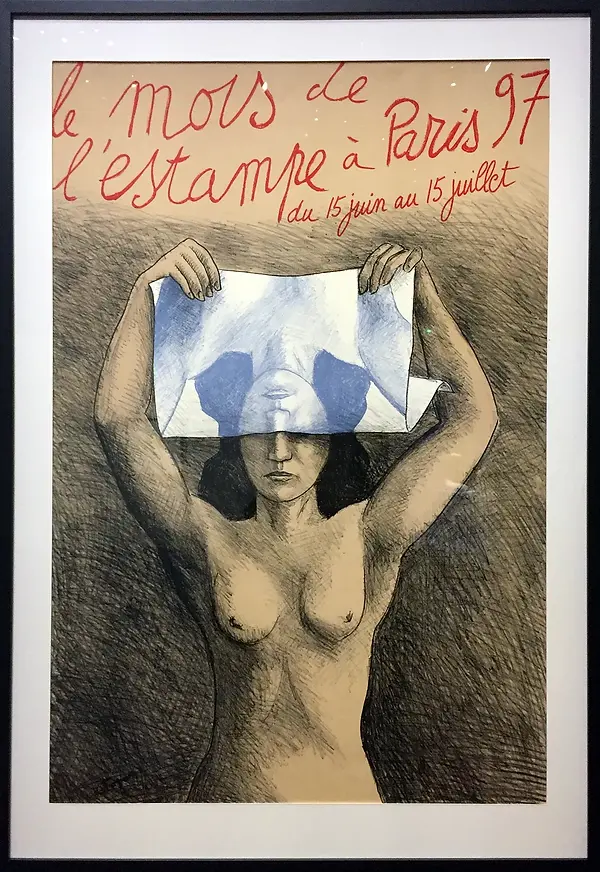
Roland Topor

Roland Topor

Roland Topor
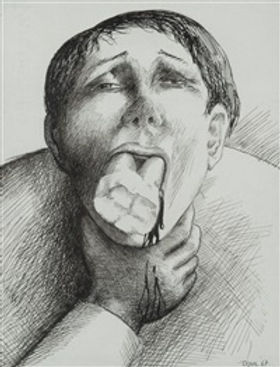
Roland Topor
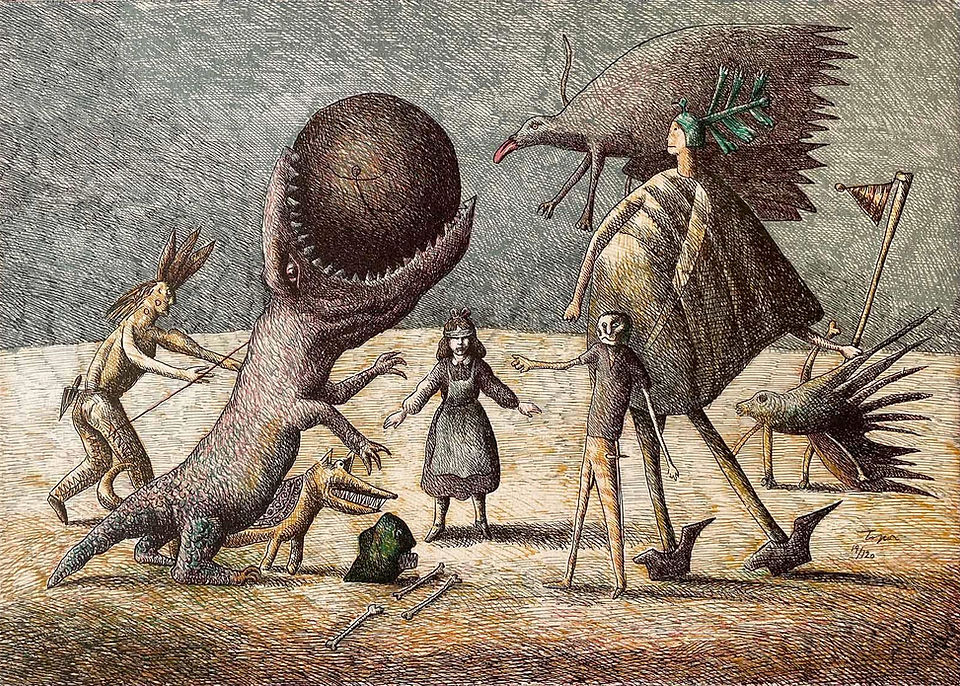
Roland Topor

Roland Topor

Roland Topor

Roland Topor
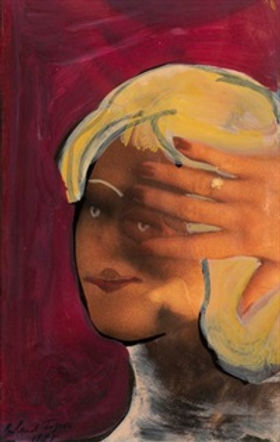
Roland Topor
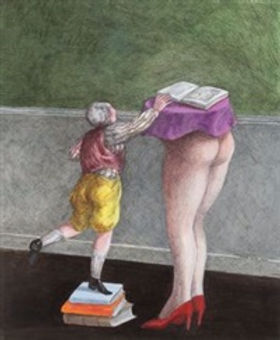
Roland Topor

Roland Topor
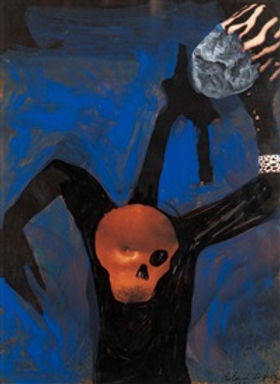
Roland Topor
Hans Ruedi Giger
1940 – 2014
Hans Ruedi Giger
(5 February 1940 – 12 May 2014) was a Swiss artist best known for his airbrushed images that blended human physiques with machines, an art style known as "biomechanical". Giger later abandoned airbrush for pastels, markers and ink. He was part of the special effects team that won an Academy Award for the visual design of Ridley Scott's 1979 sci-fi horror film Alien, and was responsible for creating the titular Alien itself. His work is on permanent display at the H.R. Giger Museum in Gruyères, Switzerland. His style has been adapted to many forms of media, including album covers, furniture, tattoos and video games.

Hans Ruedi Giger

Hans Ruedi Giger

Hans Ruedi Giger
The nightmarish works of H.R. Giger, the artist behind ‘Alien’
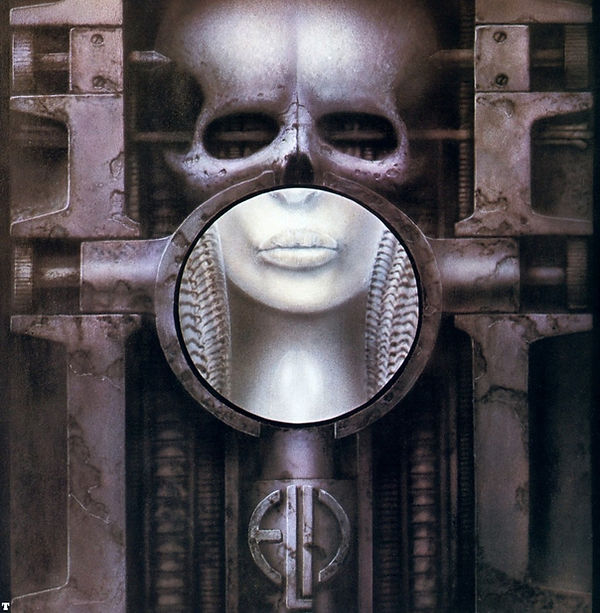
Hans Ruedi Giger
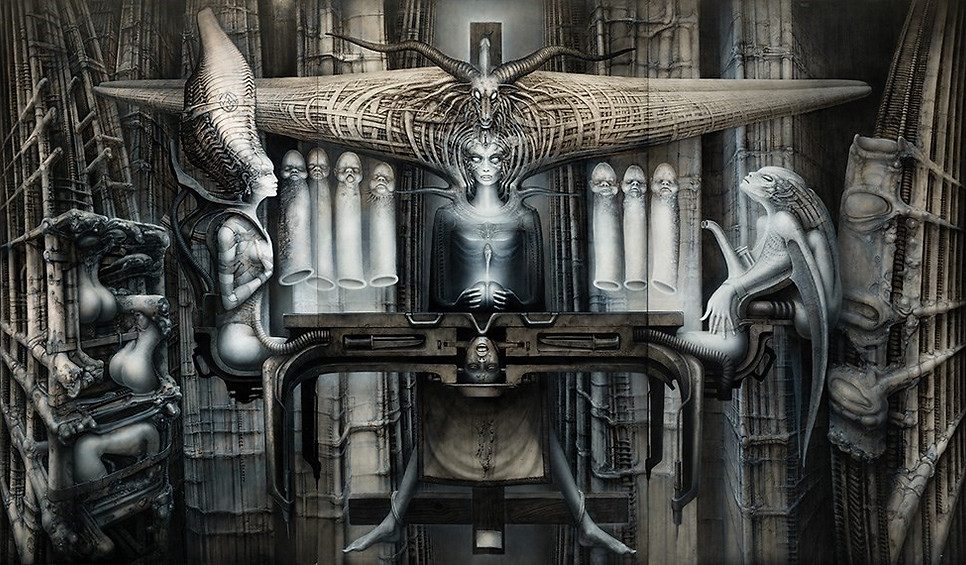
Hans Ruedi Giger

Hans Ruedi Giger

Hans Ruedi Giger

Hans Ruedi Giger

Hans Ruedi Giger
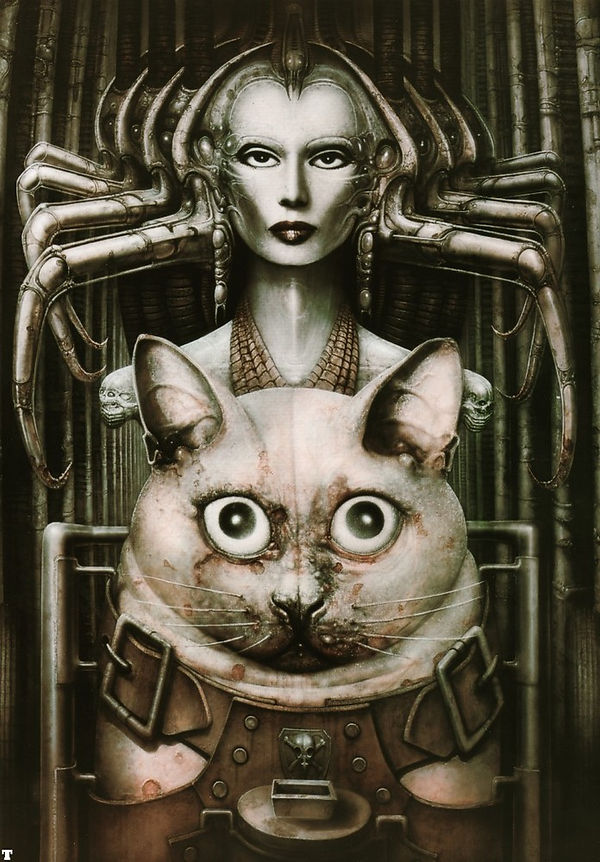
Hans Ruedi Giger

Hans Ruedi Giger

Hans Ruedi Giger
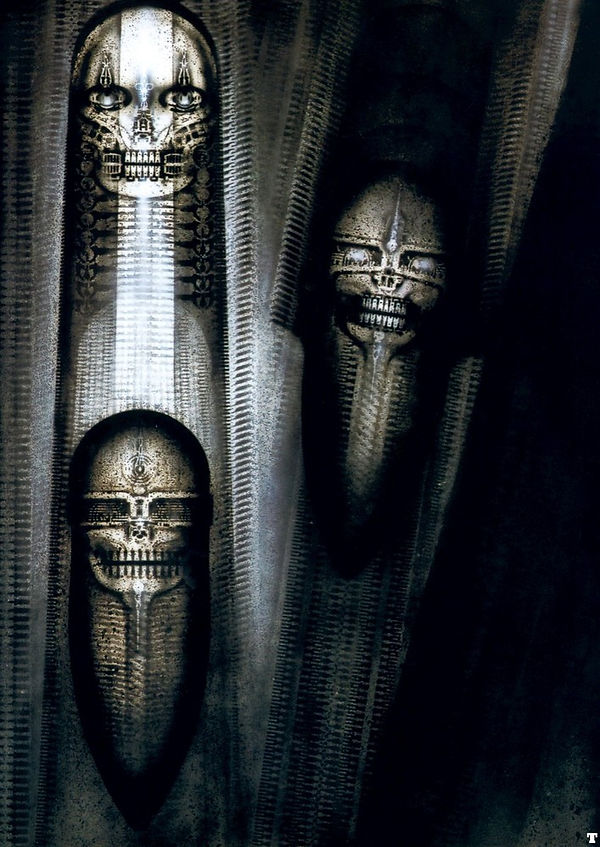
Hans Ruedi Giger
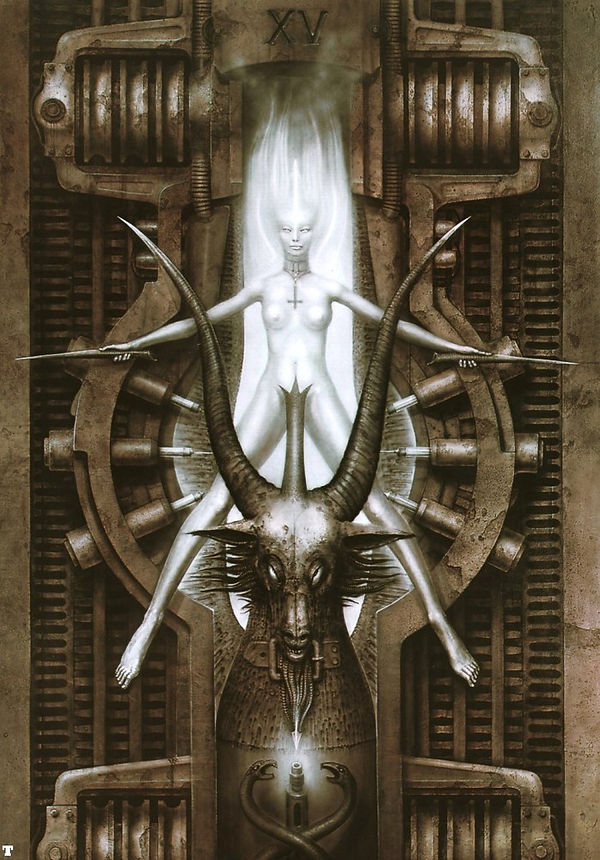
Hans Ruedi Giger
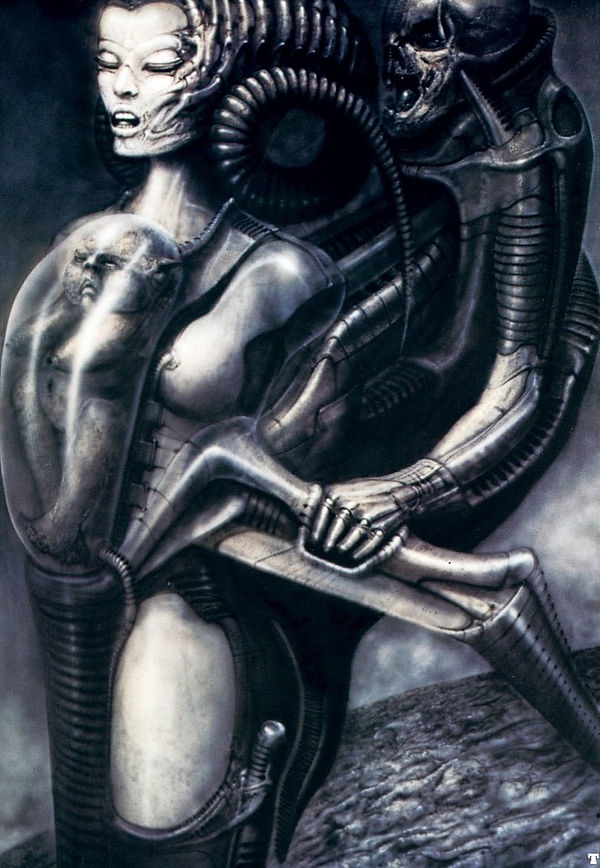
Hans Ruedi Giger

Hans Ruedi Giger

Hans Ruedi Giger
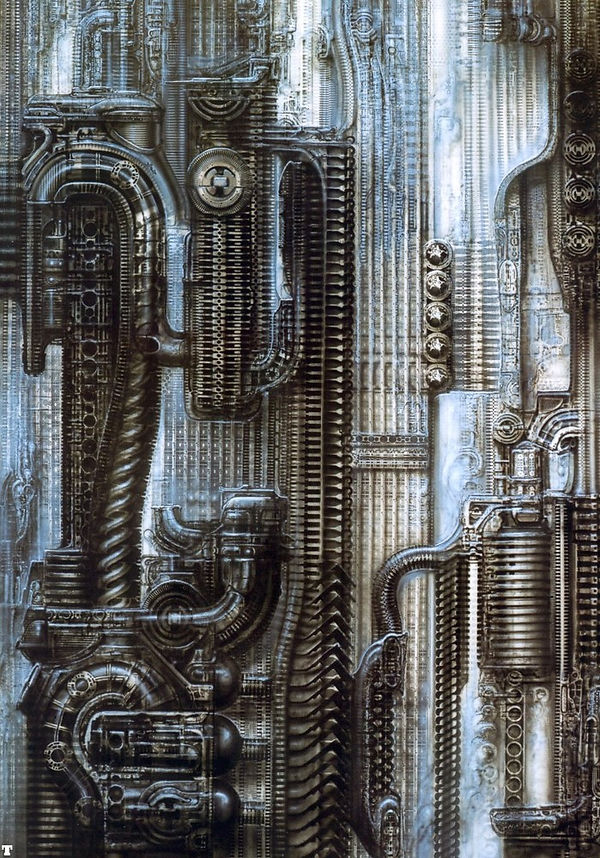
Hans Ruedi Giger

Hans Ruedi Giger
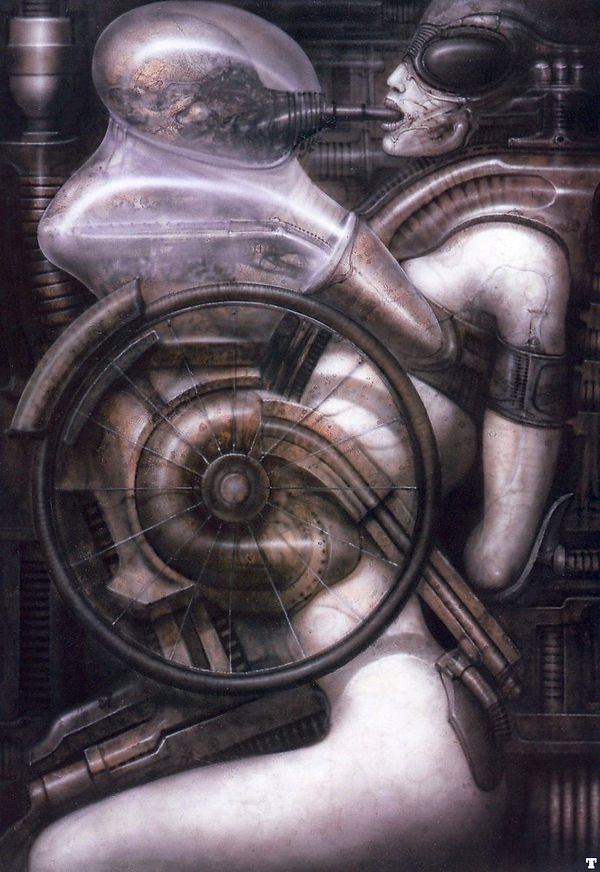
Hans Ruedi Giger
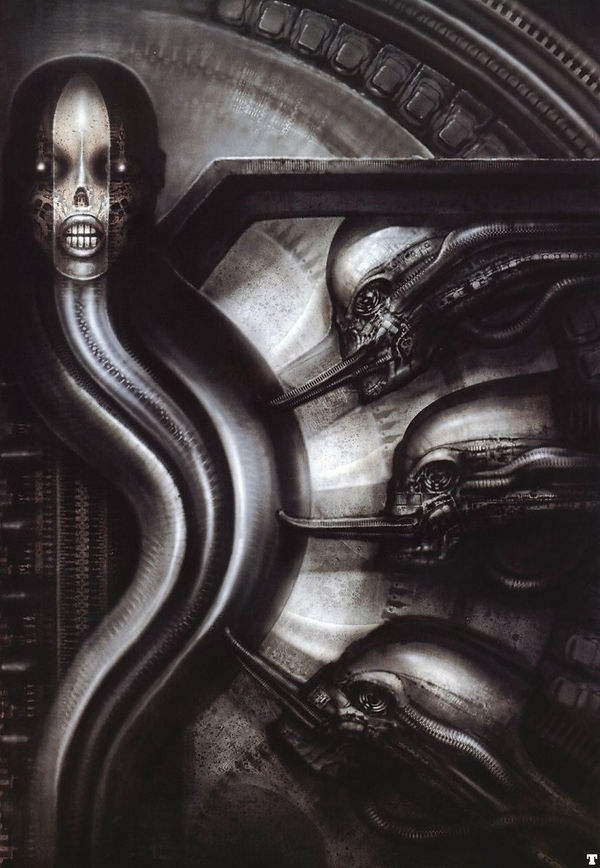
Hans Ruedi Giger

Hans Ruedi Giger
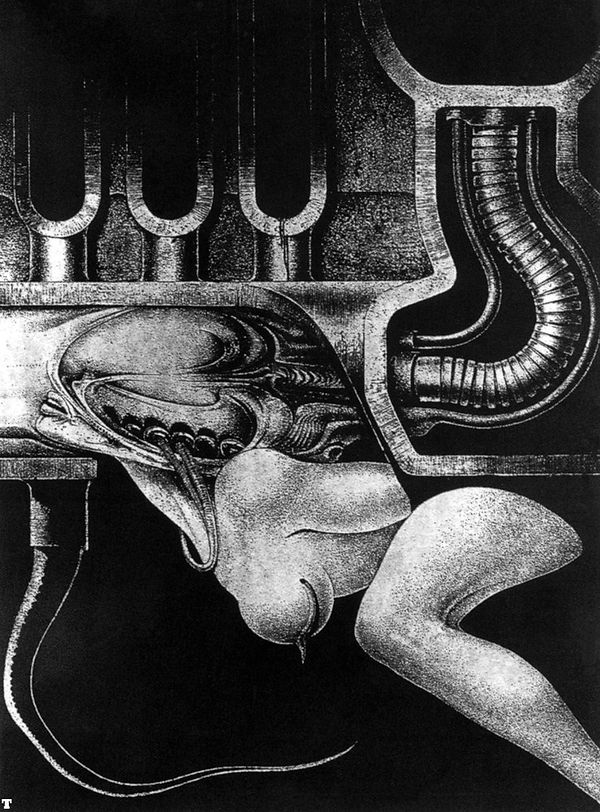
Hans Ruedi Giger

Hans Ruedi Giger
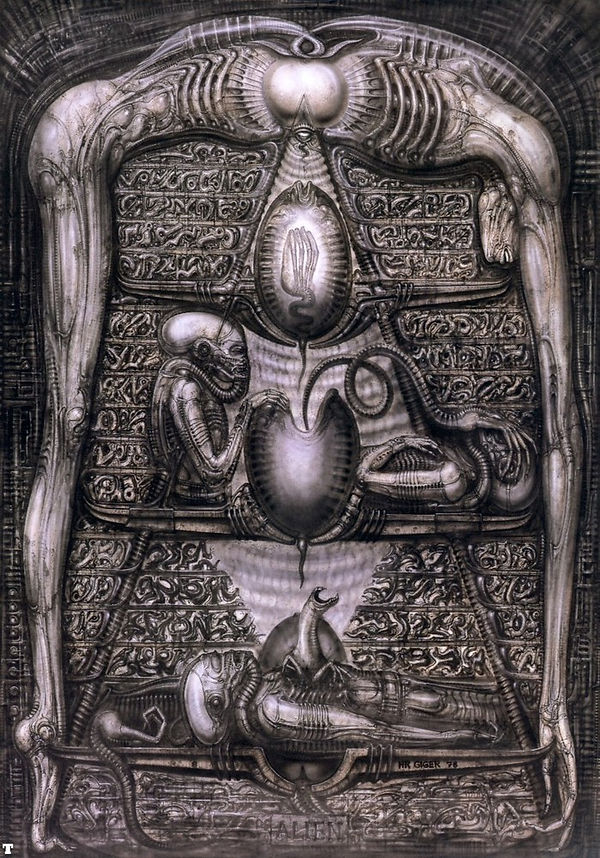
Hans Ruedi Giger
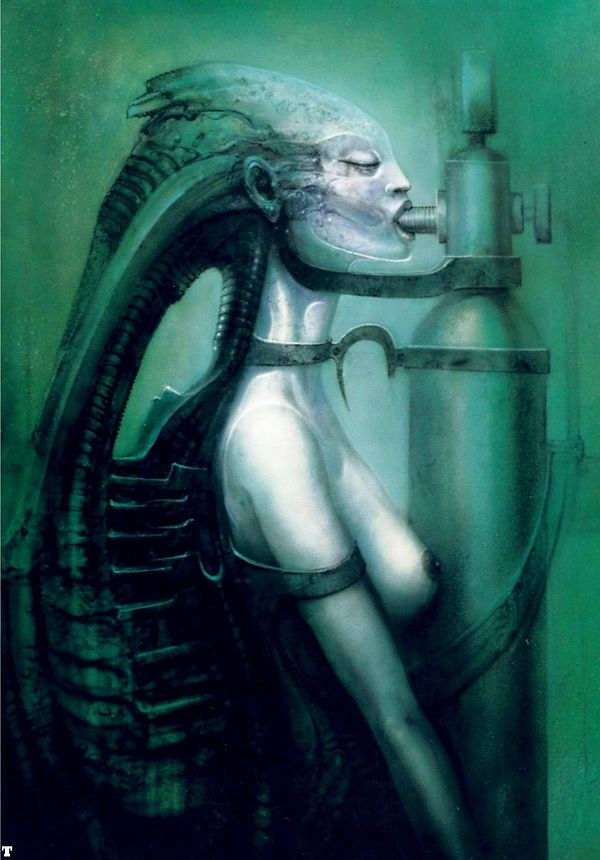
Hans Ruedi Giger

Hans Ruedi Giger

Hans Ruedi Giger

Hans Ruedi Giger
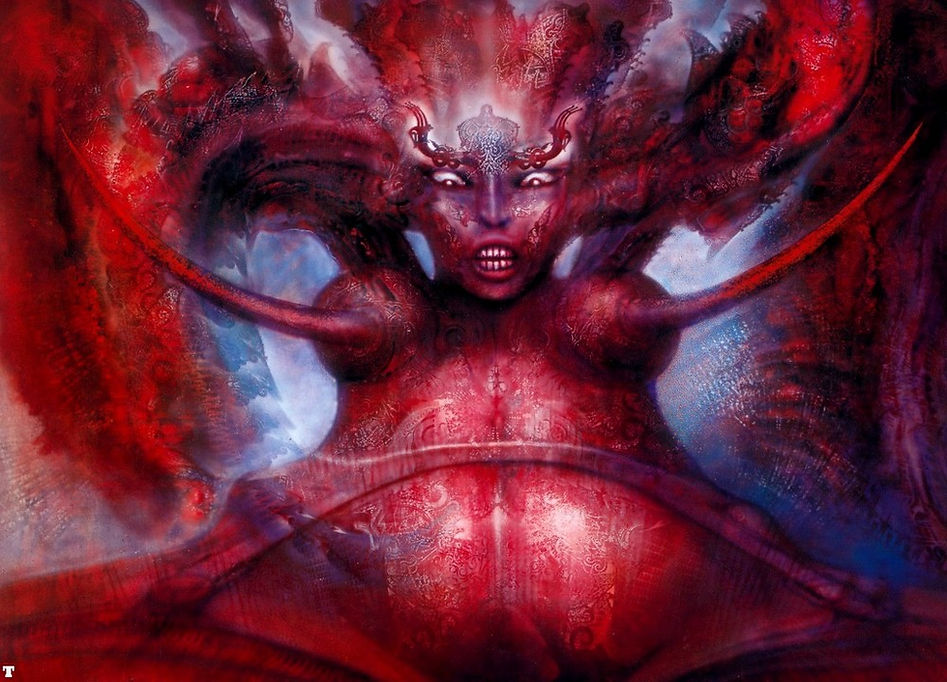
Hans Ruedi Giger

Hans Ruedi Giger

Hans Ruedi Giger
Boris Vallejo
b.1941

Boris Vallejo
(born January 8, 1941) is a Peruvian-American painter who works in the science fiction, fantasy, and erotica genres. His hyper-representational paintings have appeared on the covers of numerous science fiction and fantasy fiction novels. They are also sold through a series of annual calendars.
Born 8 January 1941 in Lima, Peru, Vallejo began painting at the age of 13, in 1954, and obtained his first illustration job three years later in 1957 at the age of 16. He attended the Escuela Nacional Superior Autónoma de Bellas Artes on a five-year scholarship, and was awarded a prize medal.
After emigrating to the United States in 1964, at the age of 23, he quickly garnered a fan following from his illustrations of Tarzan, Conan the Barbarian, Doc Savage, and various other fantasy characters (often done for paperback-fiction works featuring the characters). This led to commissions for movie-poster illustration, advertisement illustration, and artwork for various collectibles - including Franklin Mint paraphernalia, trading cards, and sculpture. Along with Julie Bell, Vallejo presents his artwork in an annual calendar and various books. Vallejo's work is often compared to the work of Frank Frazetta, not only because it is similar stylistically, but also because Frazetta painted covers for paperbacks of some of the same characters.
Vallejo's preferred artistic medium is oil on board, and he has previously used photographs to combine discrete images to form composite images. Preparatory works are pencil or ink sketches, which have been displayed in the book Sketchbook. He and Julie Bell have worked on collaborative artworks together, in which they sign the artwork with both names.
Vallejo has produced film posters for numerous fantasy and action movies, including Knightriders (1981), Q (1982), and Barbarian Queen (1985). He has also illustrated posters for comedies, notably National Lampoon's Vacation (1983), European Vacation (1985), Nothing but Trouble (1991) and Aqua Teen Hunger Force Colon Movie Film for Theaters (2007), co-created with Bell.
He created the 1978 Tarzan calendar.[citation needed] His sea serpent paintings hang in the queue of Loch Ness Monster, a rollercoaster at Busch Gardens Williamsburg.

Boris Vallejo
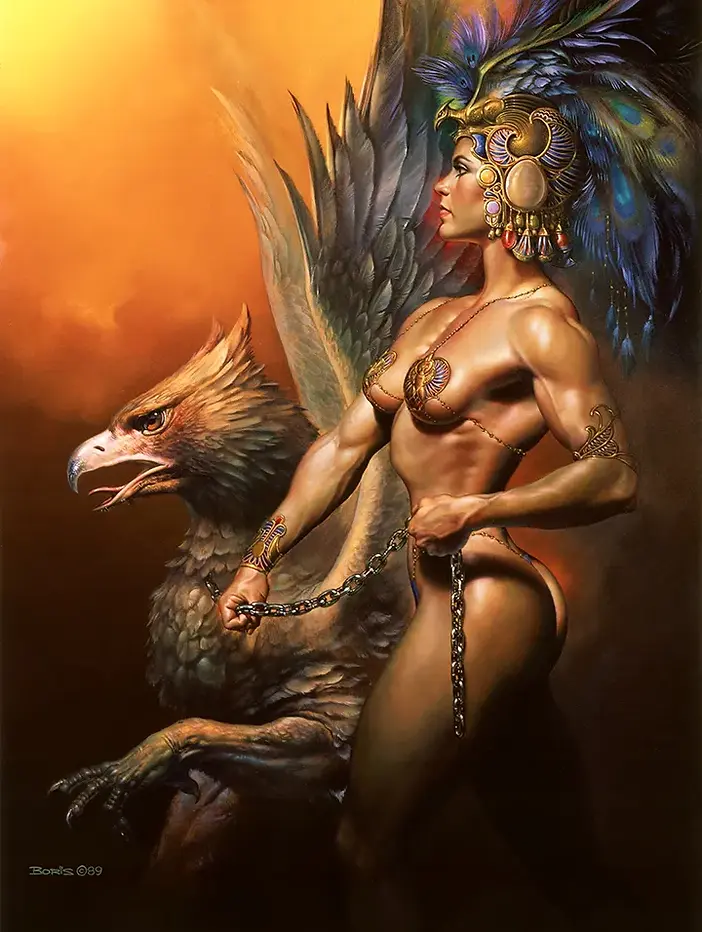
Boris Vallejo
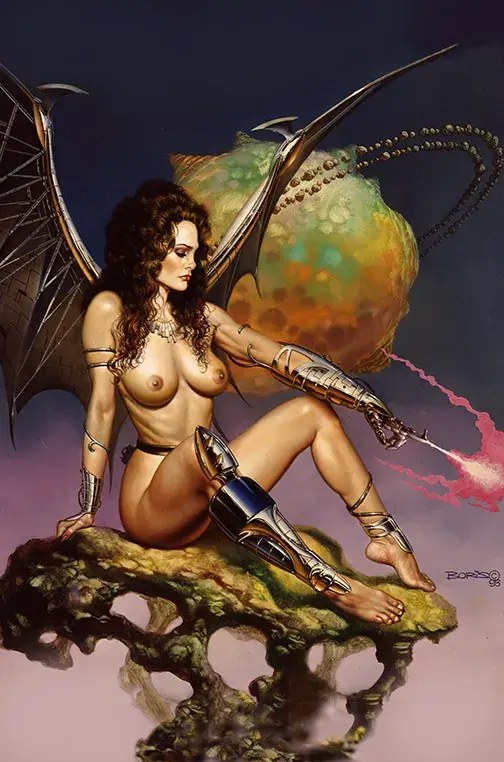
Boris Vallejo
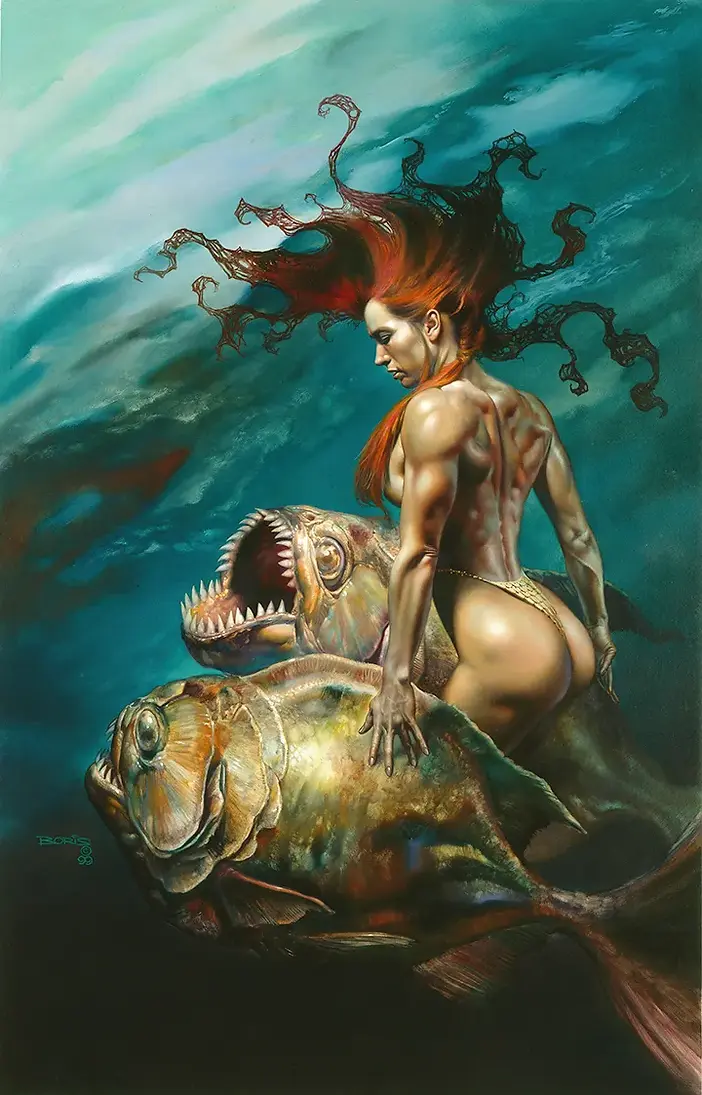
Boris Vallejo
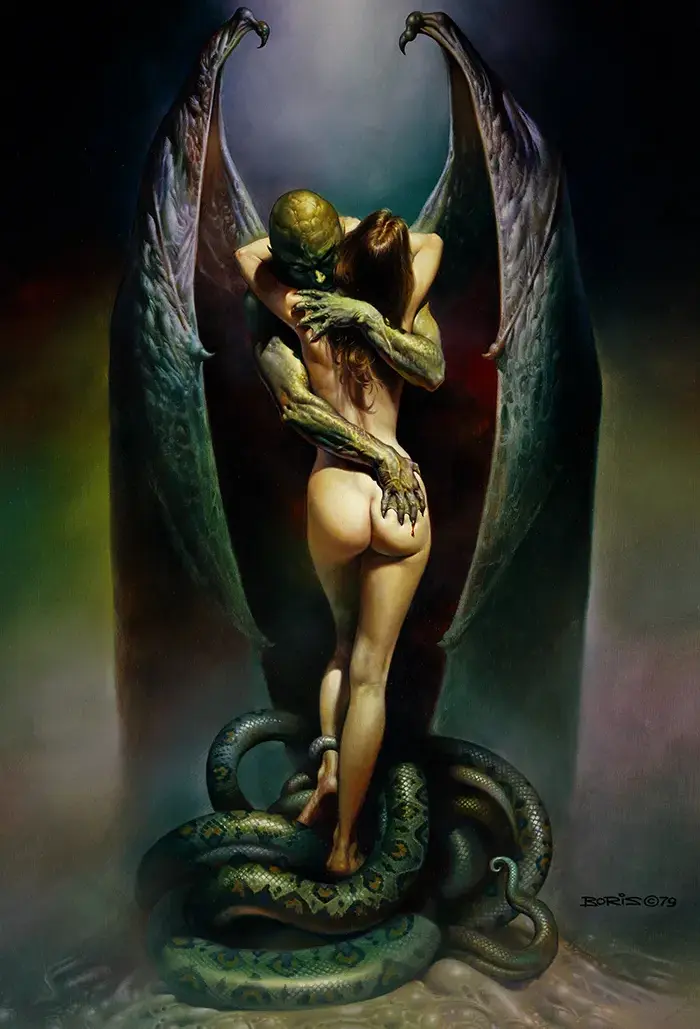
Boris Vallejo
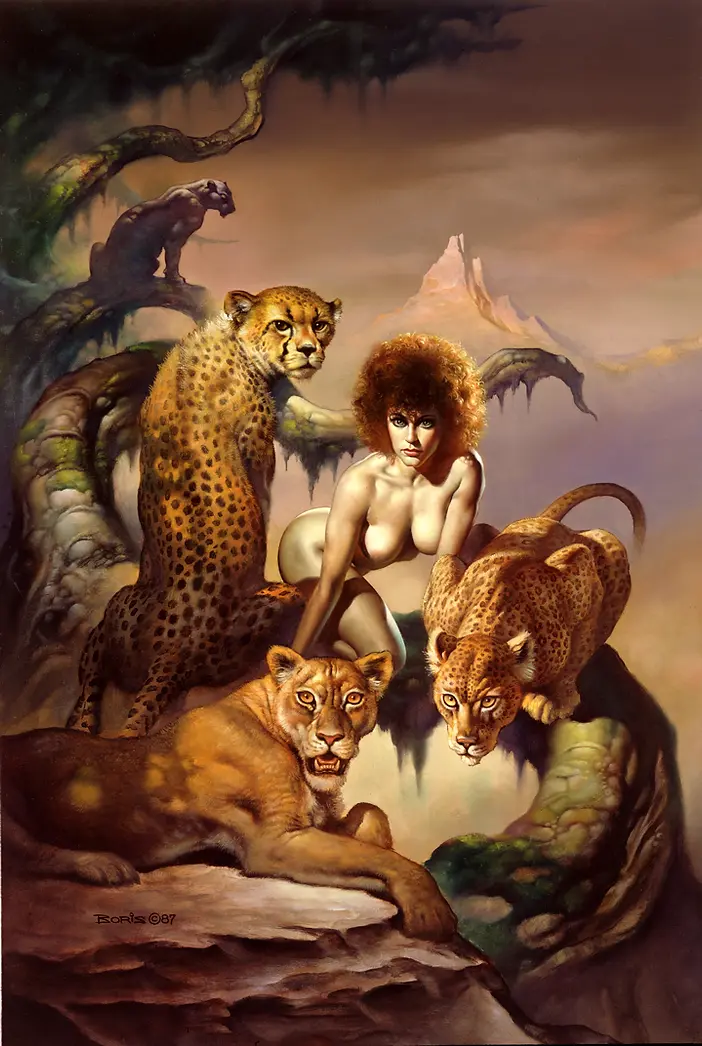
Boris Vallejo
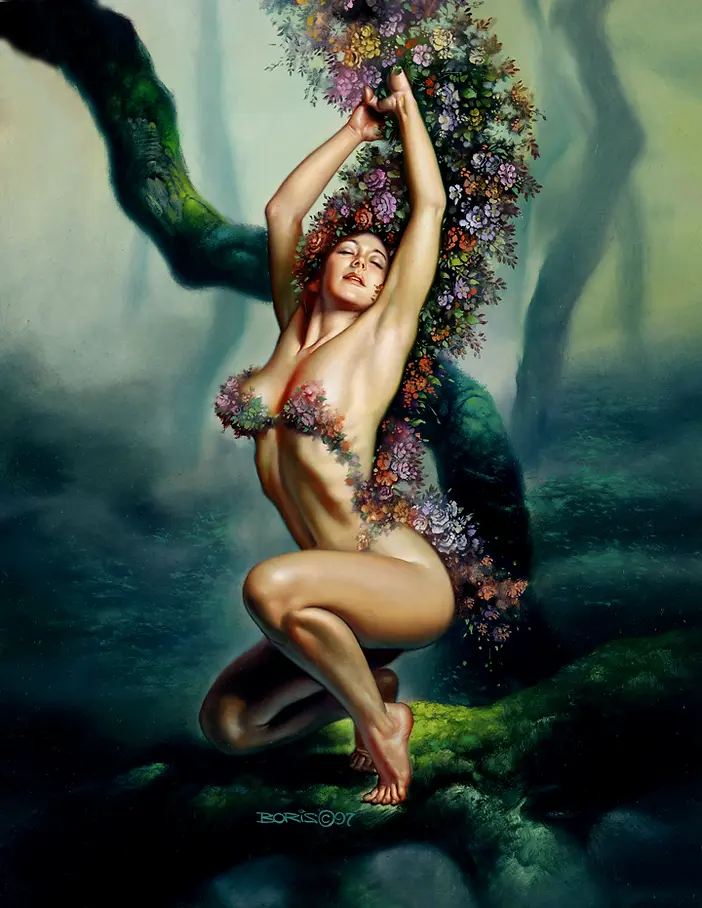
Boris Vallejo
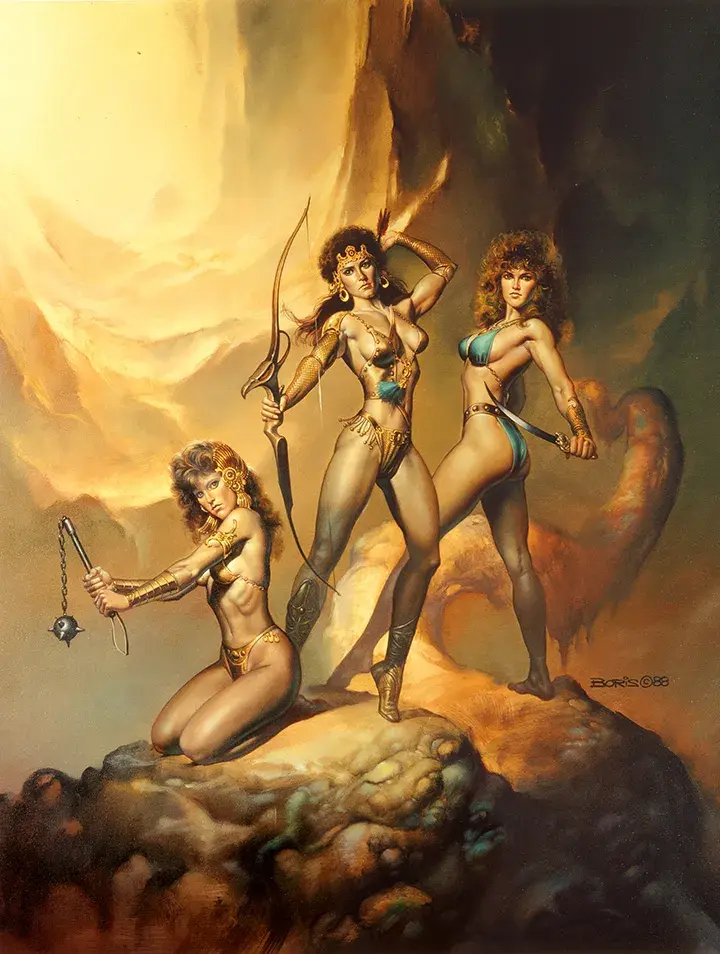
Boris Vallejo
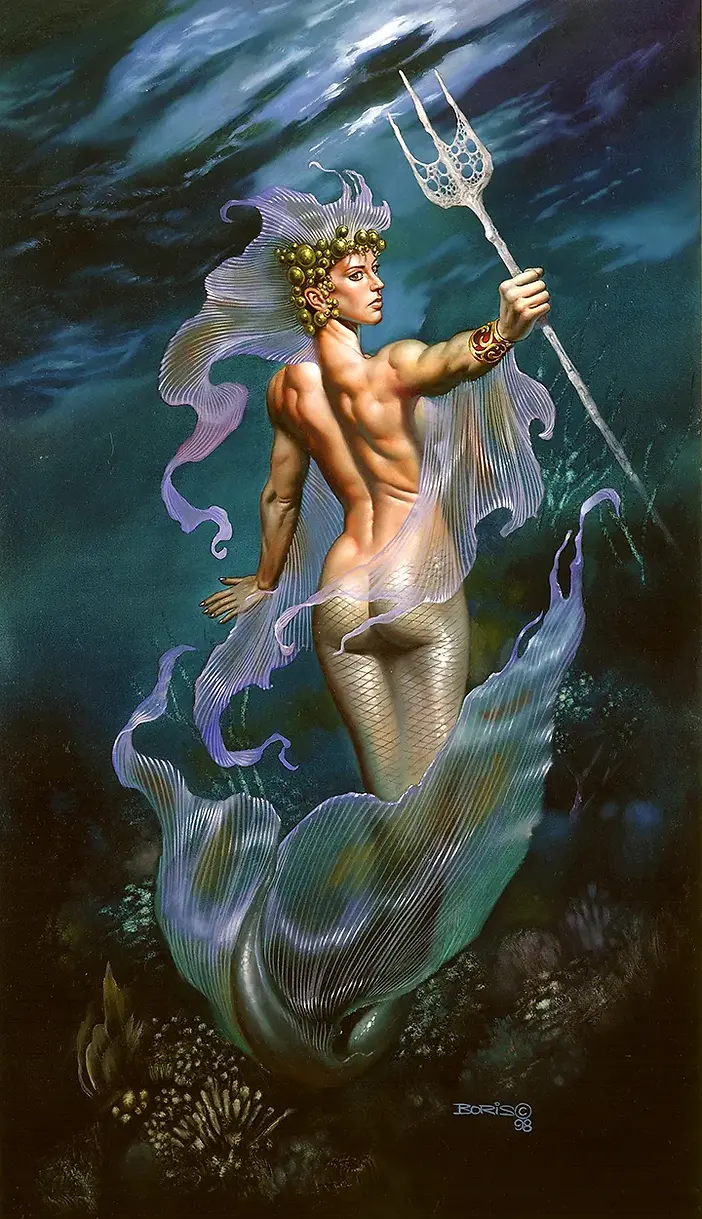
Boris Vallejo
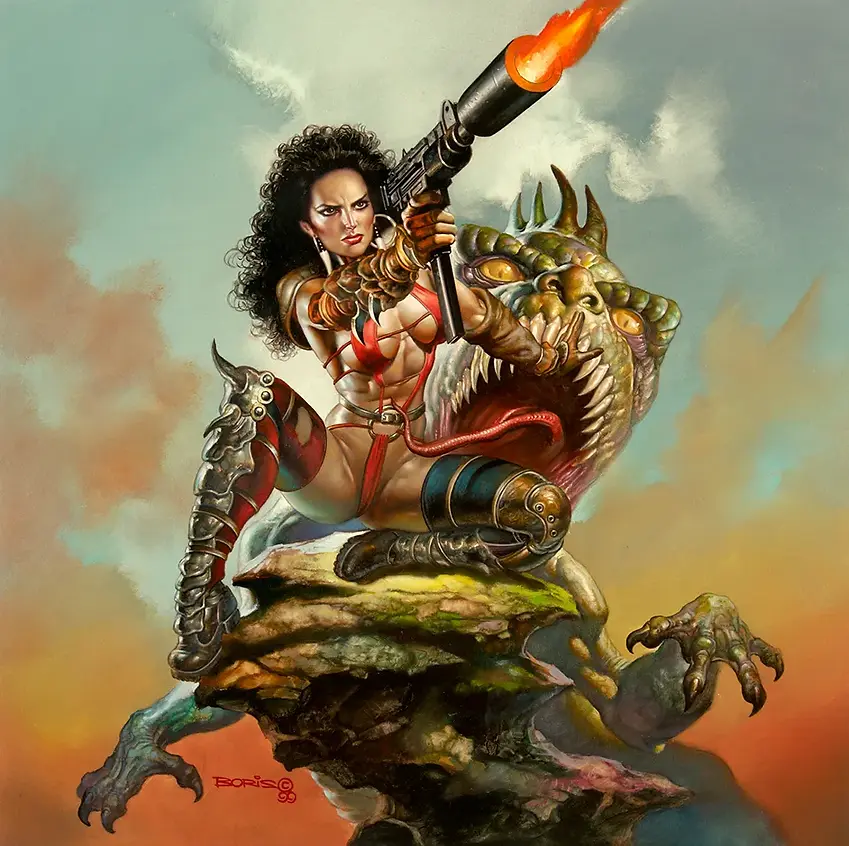
Boris Vallejo
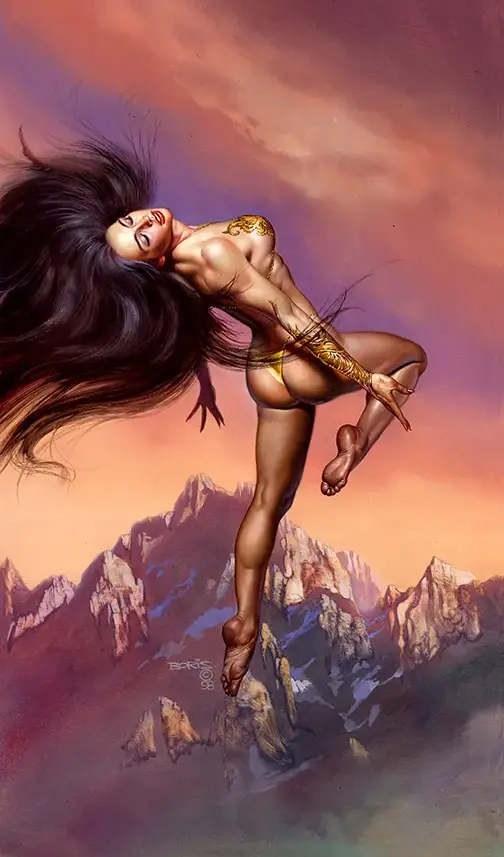
Boris Vallejo
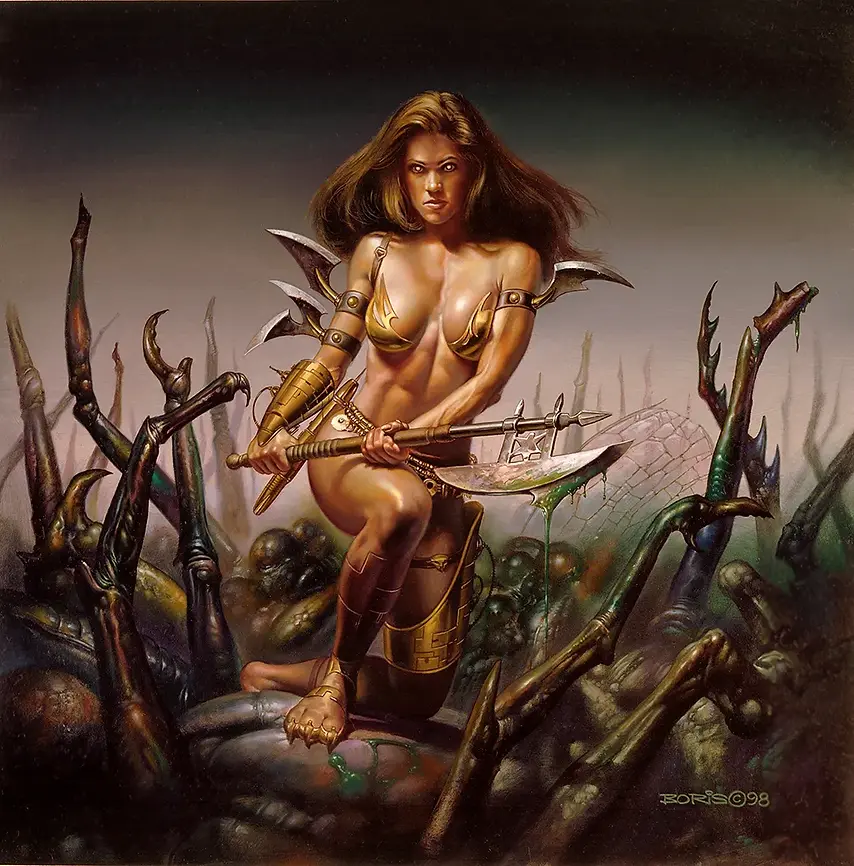
Boris Vallejo
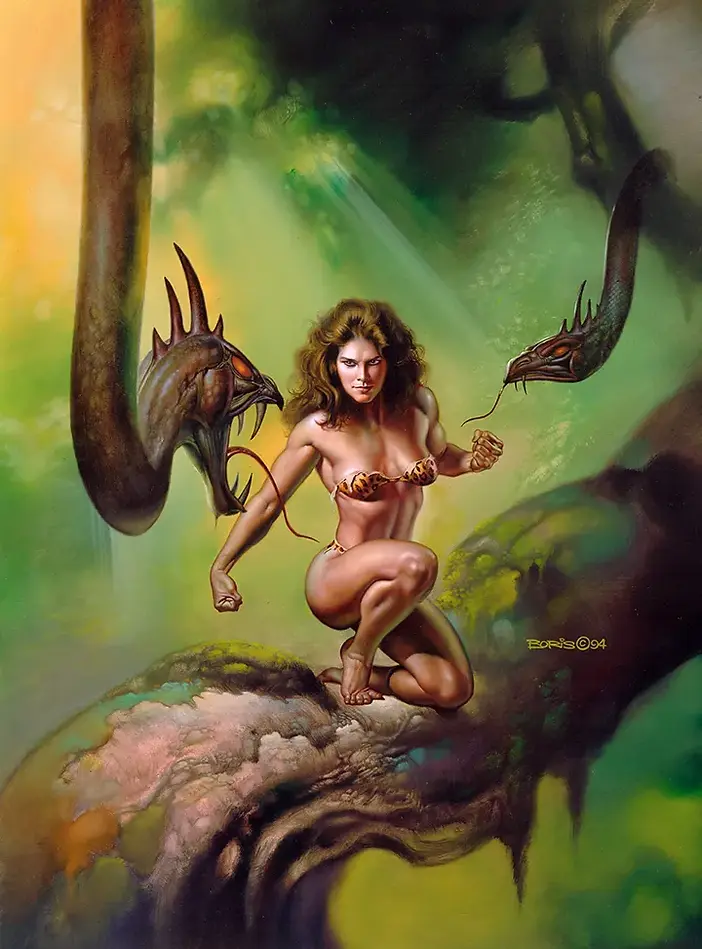
Boris Vallejo
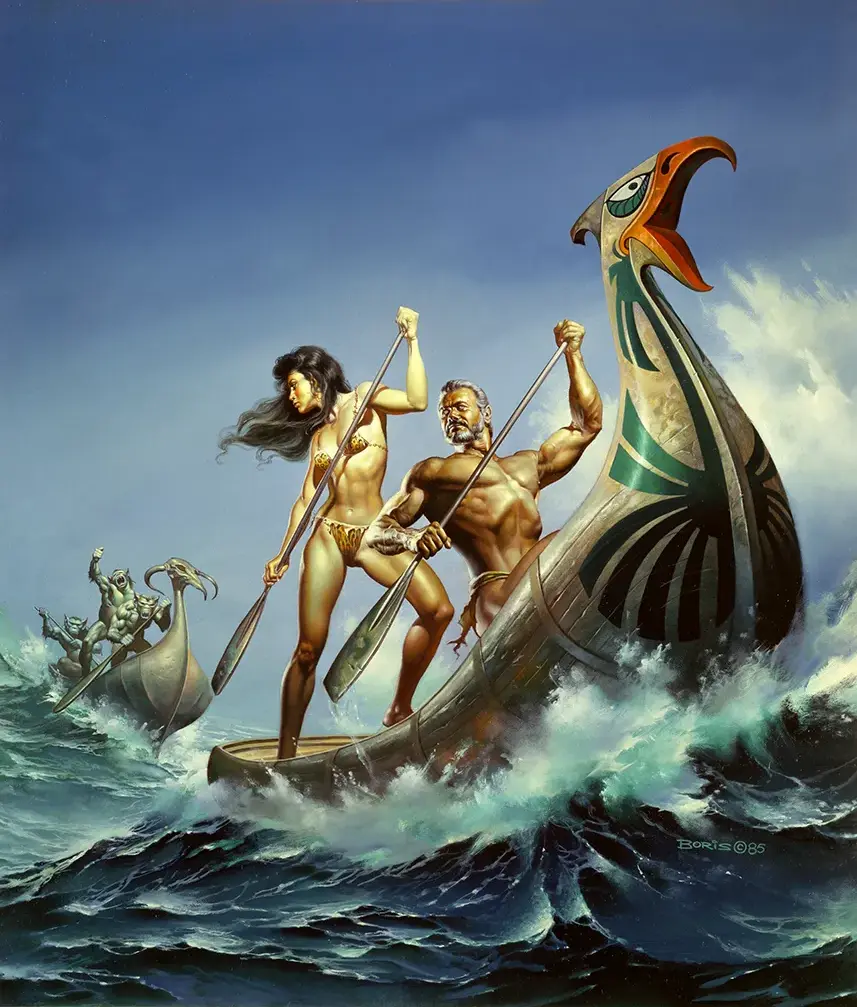
Boris Vallejo
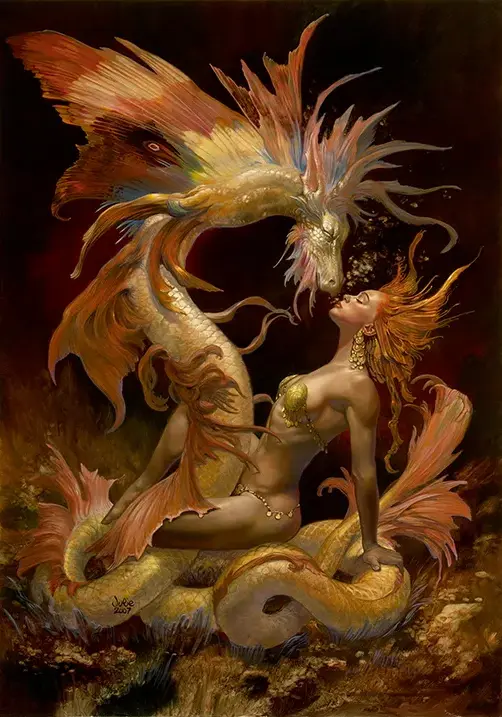
Boris Vallejo
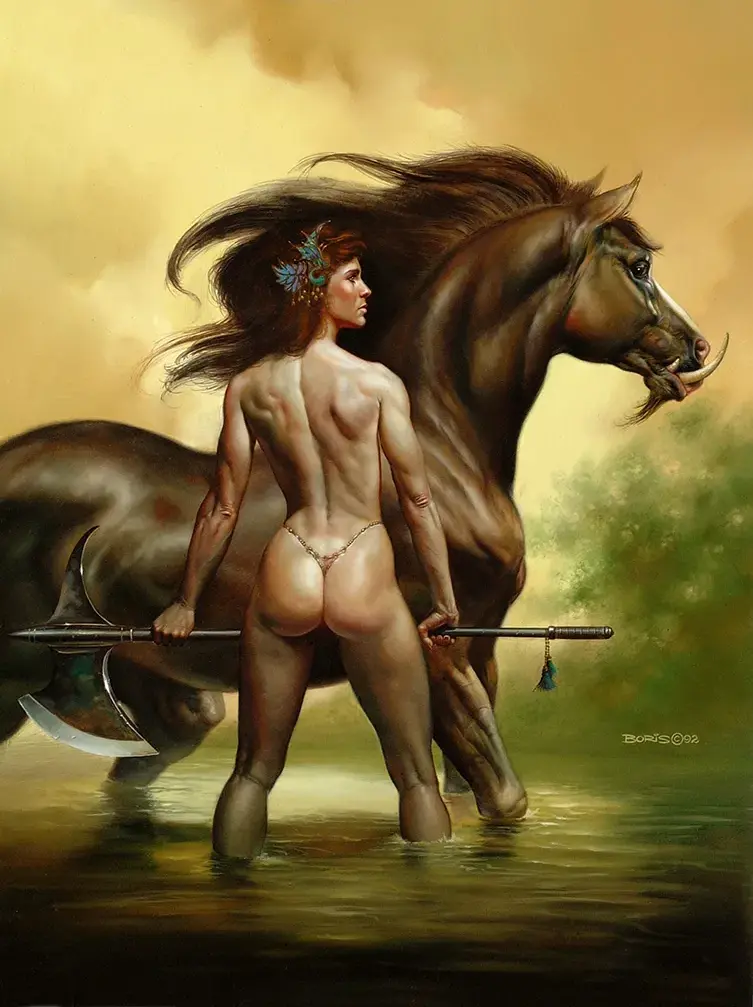
Boris Vallejo
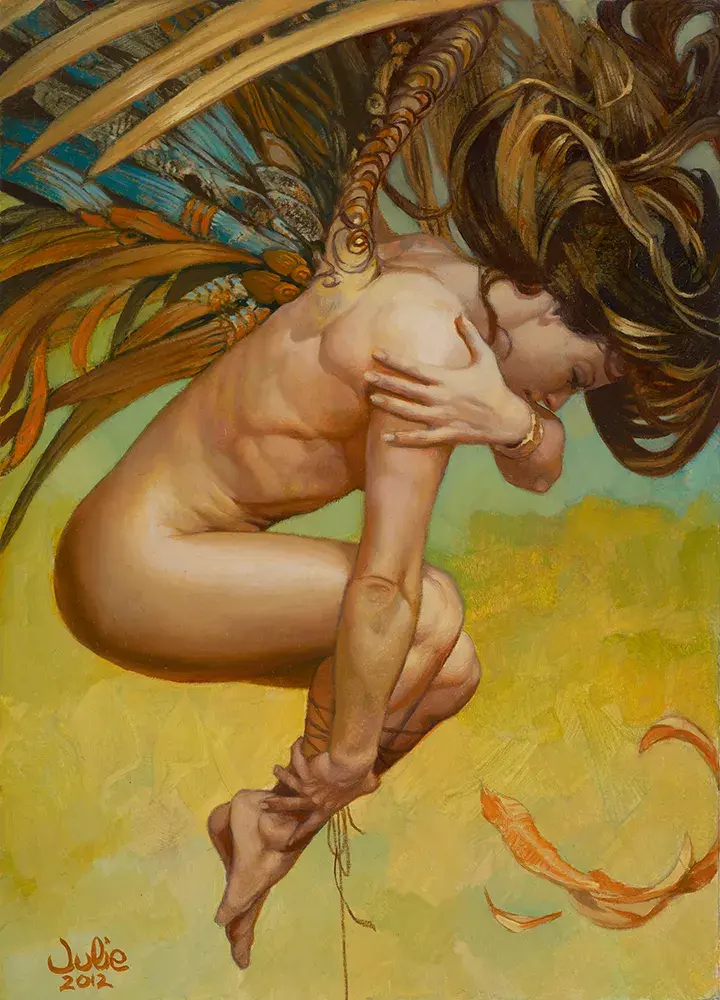
Boris Vallejo
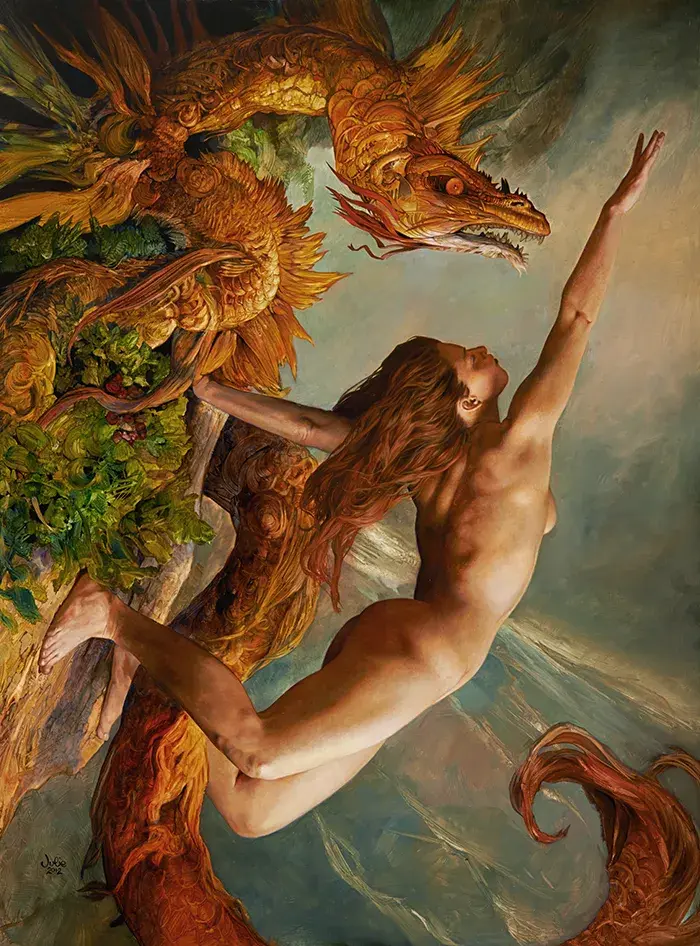
Boris Vallejo
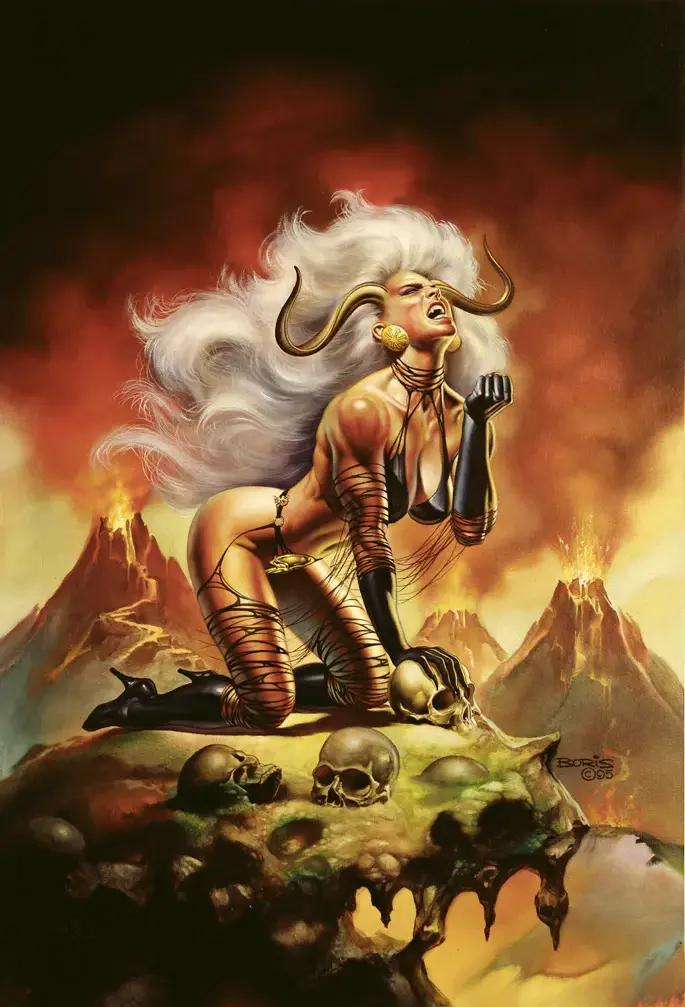
Boris Vallejo

Boris Vallejo
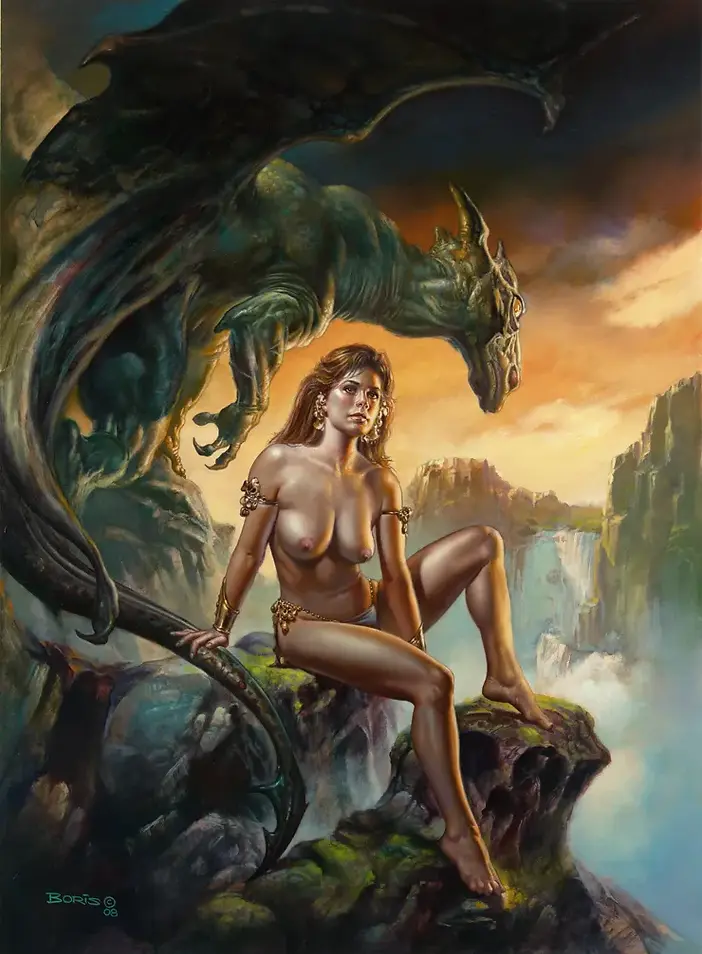
Boris Vallejo
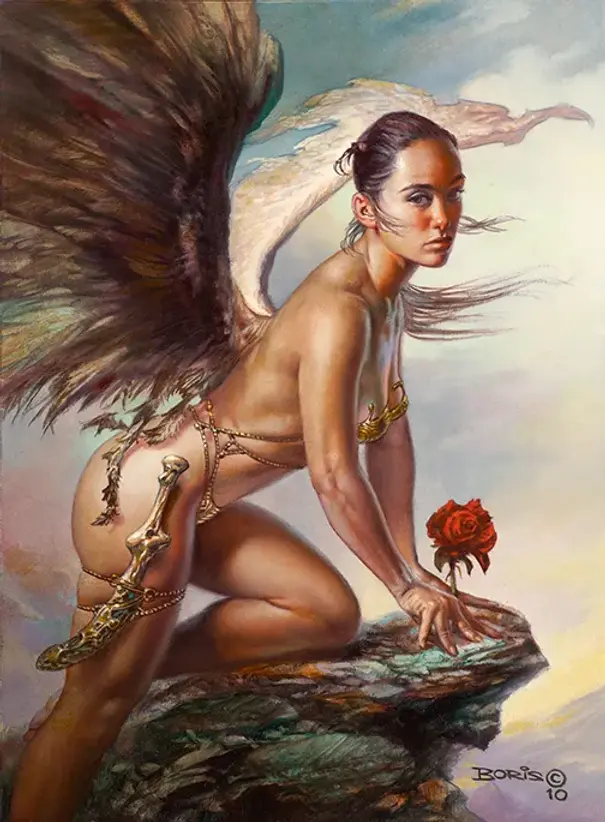
Boris Vallejo

Boris Vallejo

Boris Vallejo

Boris Vallejo
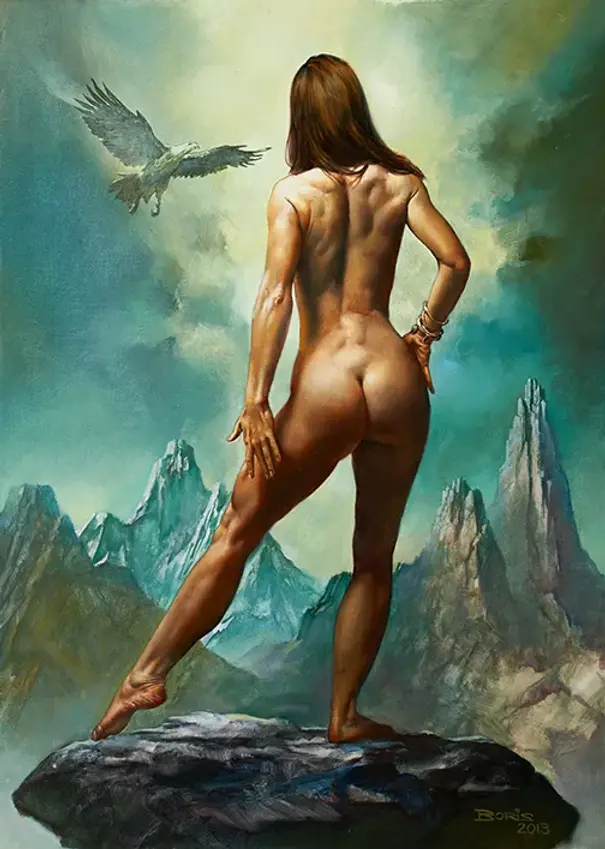
Boris Vallejo
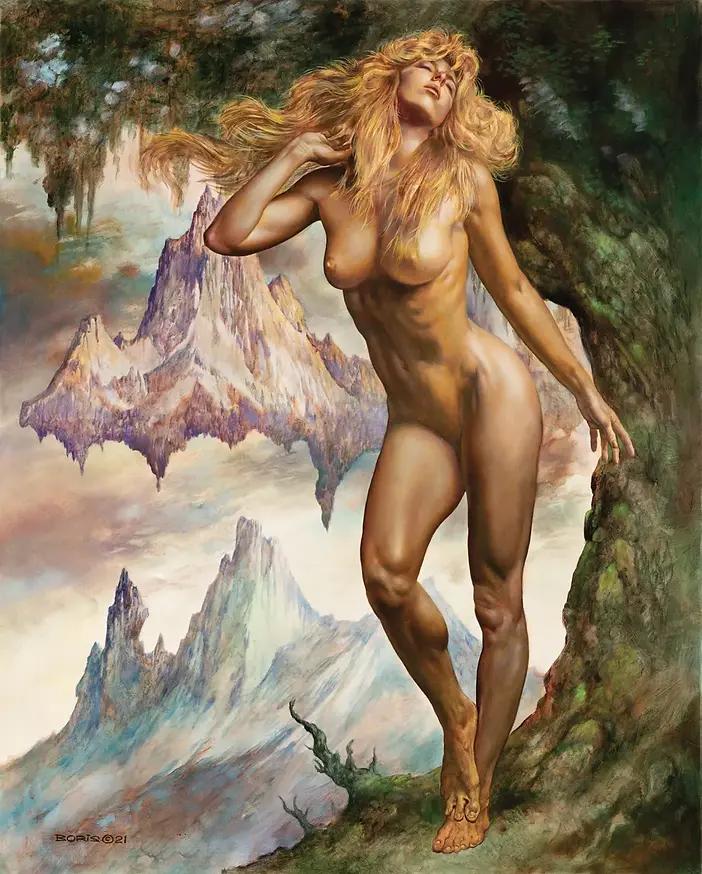
Boris Vallejo
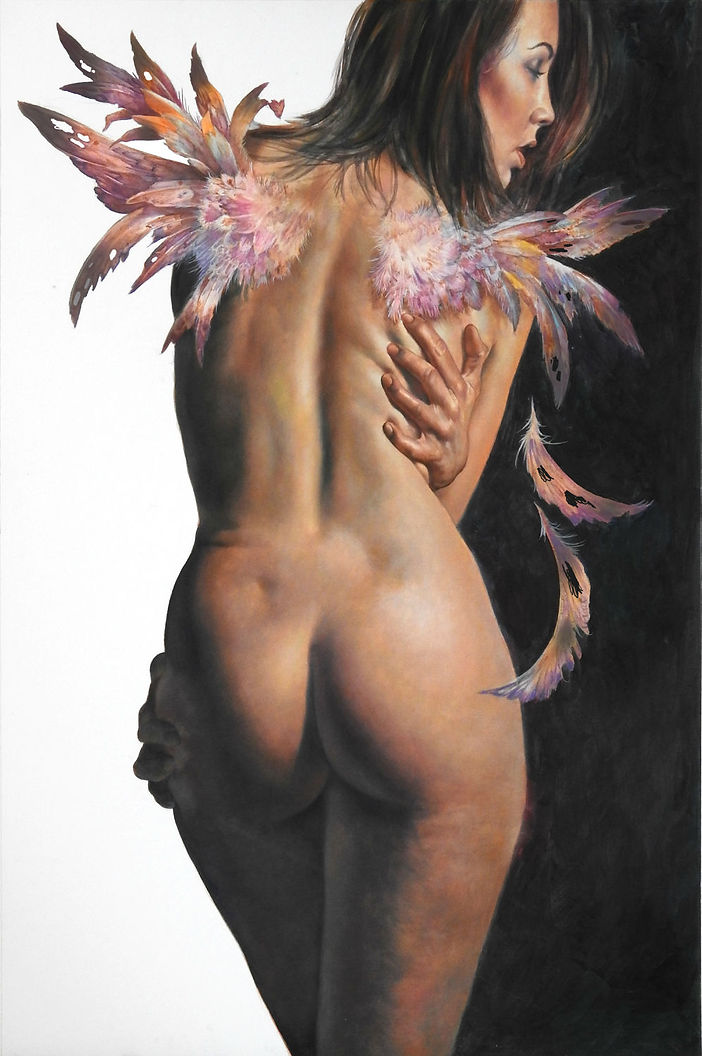
Boris Vallejo

Boris Vallejo

Boris Vallejo

Boris Vallejo

Boris Vallejo
Roland Cat
b.1943

ROLAND CAT: THE REFLECTED BUILDING. 1973.

Roland Cat was born on February 5, 1943 in Paris. Roland Cat is a contemporary French painter whose inspiration and technique are somewhat apart. His art is close to some of the themes of science fiction but with a very personal vision and far removed from the kind of shots. It has been called "visionary". Many of his paintings show landscapes of planet Earth on which man seems to have disappeared.

ROLAND CAT
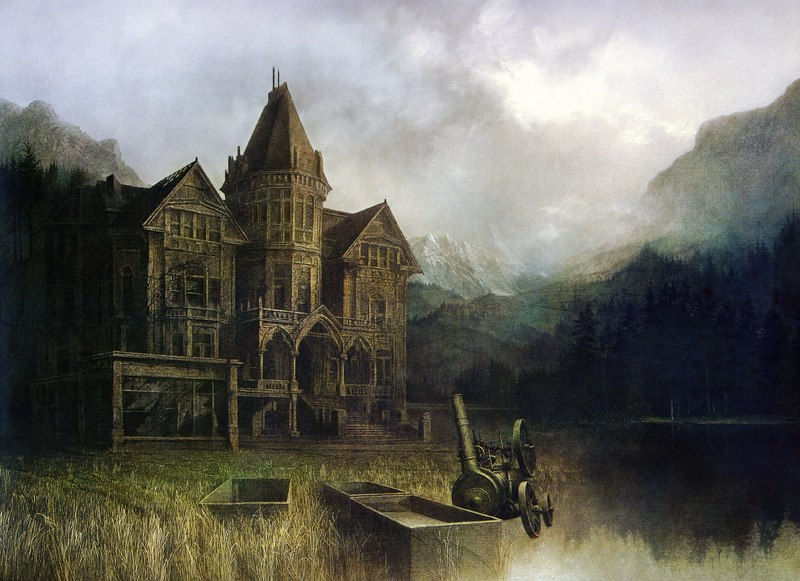
ROLAND CAT

ROLAND CAT

ROLAND CAT

ROLAND CAT

ROLAND CAT
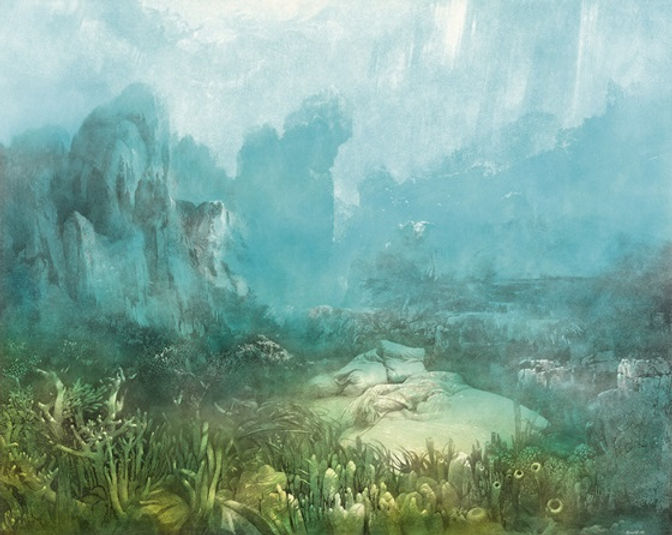
ROLAND CAT

ROLAND CAT

ROLAND CAT

ROLAND CAT

ROLAND CAT

ROLAND CAT

ROLAND CAT

ROLAND CAT

ROLAND CAT
Rowena Morrill
1944-2021

Rowena A. Morrill (September 14, 1944 – February 11, 2021), also credited as Rowena and Rowina Morril, was an American artist known for her science-fiction and fantasy illustration, and is credited as one of the first female artists to impact paperback cover illustration. Her notable artist monographs included The Fantastic Art of Rowena, Imagine (in France), Imagination (in Germany), and The Art of Rowena and her work has also been included in a variety of anthologies including Tomorrow and Beyond and Infinite Worlds.
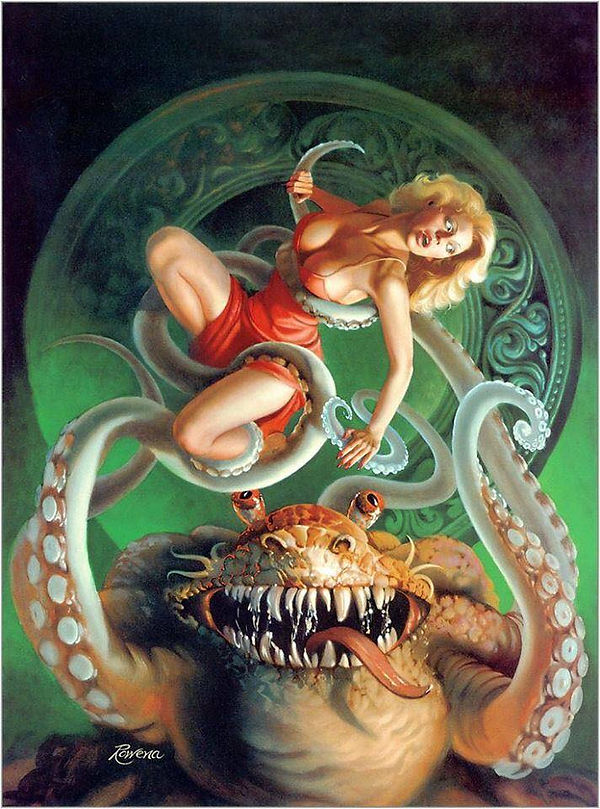
Rowena Morrill

Rowena Morrill

Rowena Morrill

Rowena Morrill

Rowena Morrill

Rowena Morrill

Rowena Morrill
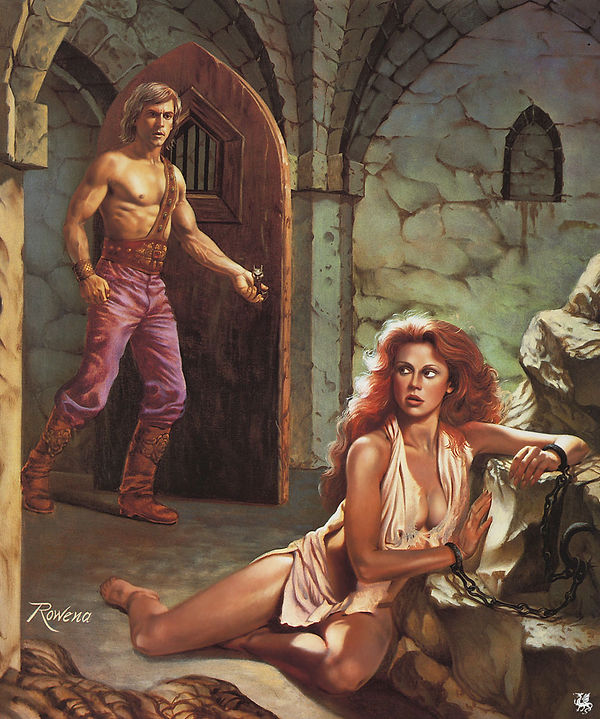
Rowena Morrill
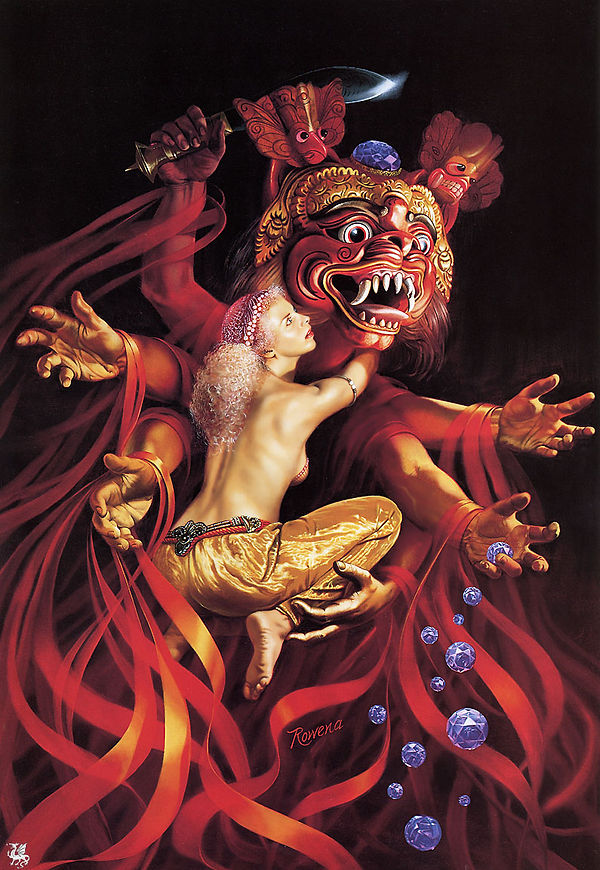
Rowena Morrill

Rowena Morrill

Rowena Morrill

Rowena Morrill
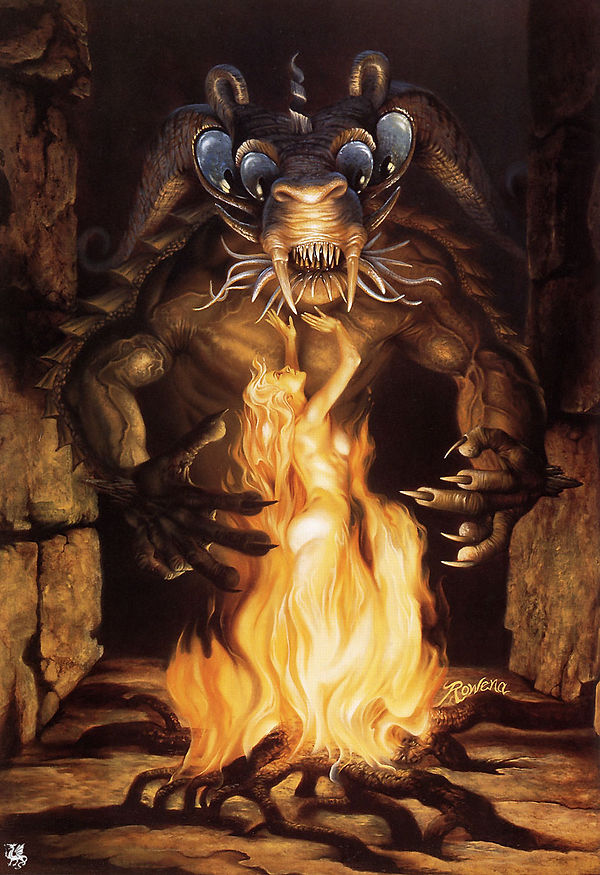
Rowena Morrill

Rowena Morrill

Rowena Morrill

Rowena Morrill

Rowena Morrill
Kalervo Palsa
1947 – 1987
Kalervo Palsa
Huugo Kalervo Palsa, known as Kalle (12 March 1947 – 3 October 1987), was a Finnish artist whose style has been described as fantastic realism.
Although his work did not draw significant attention in his lifetime, Kalervo Palsa has experienced a more recent revival since the publication of critical works, a biography and two major retrospectives in Helsinki and Pori.
Palsa was a native of Kittilä in Lapland. While he lived there, his residence was a tiny studio cabin, closer to a shack than a house. It was connected to electricity by a long extension cable from a nearby house, and Palsa called it his "Getsemane" after the biblical site, or sometimes his "castle in the clouds".
Palsa died in 1987, lying in bed at home alone with pneumonia.
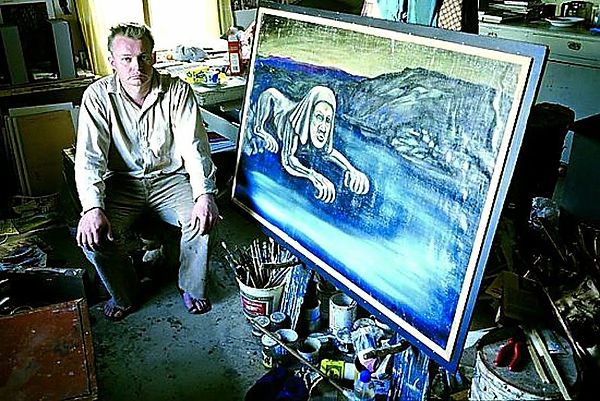
Kalervo Palsa

Kalervo Palsa
Self Portrait

Kalervo Palsa
Self Portrait
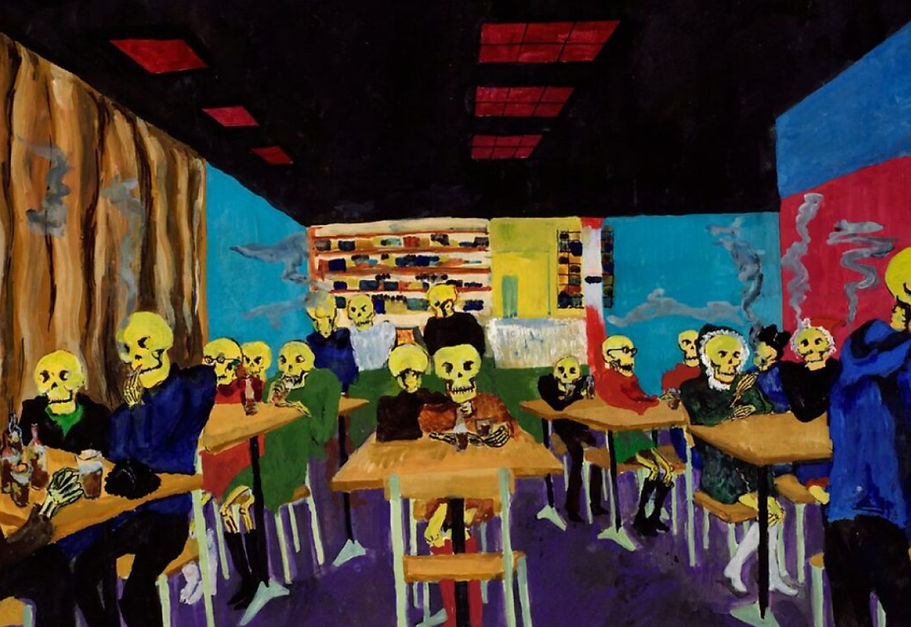
Kalervo Palsa

Kalervo Palsa
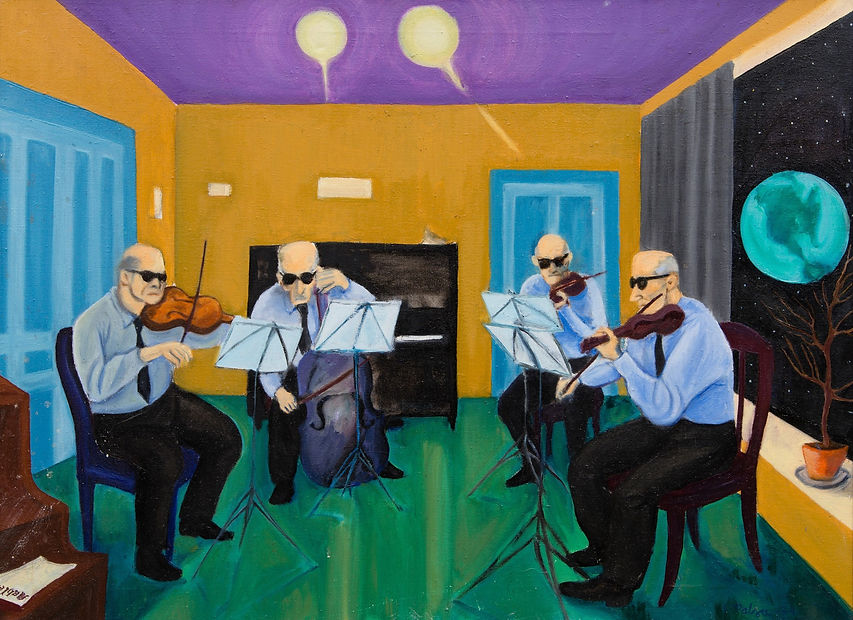
Kalervo Palsa

Kalervo Palsa

Kalervo Palsa

Kalervo Palsa

Kalervo Palsa

Kalervo Palsa

Kalervo Palsa

Kalervo Palsa

Kalervo Palsa
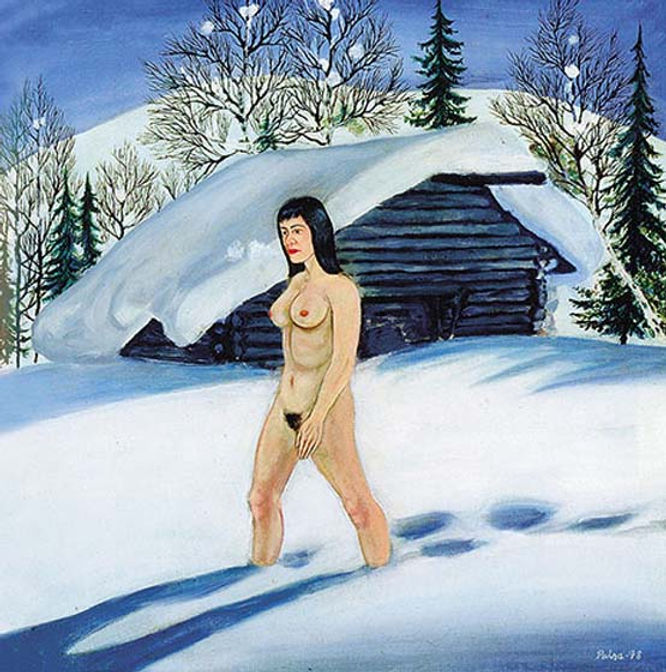
Kalervo Palsa

Kalervo Palsa

Kalervo Palsa

Kalervo Palsa

Kalervo Palsa

Kalervo Palsa
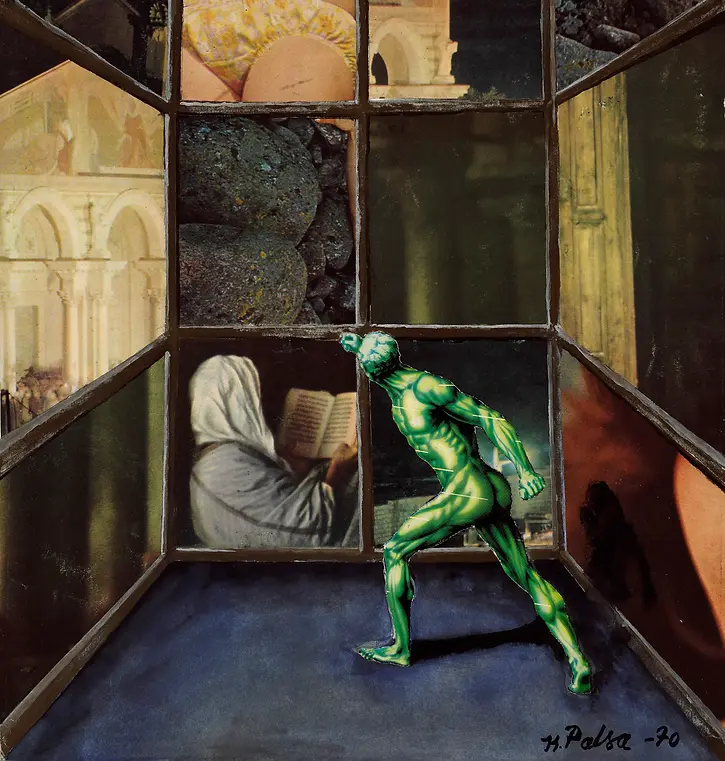
Kalervo Palsa

Kalervo Palsa

Kalervo Palsa

Kalervo Palsa

Kalervo Palsa

Kalervo Palsa

Kalervo Palsa

Kalervo Palsa

Kalervo Palsa

Kalervo Palsa

Kalervo Palsa

Kalervo Palsa

Kalervo Palsa

Kalervo Palsa

Kalervo Palsa

Kalervo Palsa

Kalervo Palsa

Kalervo Palsa
Hajime Sorayama
b.1947

Hajime Sorayama (空山 基, Sorayama Hajime, born February 22, 1947) is a Japanese illustrator known, along for his design work on the original Sony AIBO, for his precisely detailed, erotic portrayals of feminine robots. He describes his highly detailed style as "superrealism", which he says "deals with the technical issue of how close one can get to one's object."
Modern English-language editions of Sorayama's art books give his name as Hajime Sorayama, using conventional Western order, with given name followed by surname. Some older publications give his name as Sorayama Hajime, using native Japanese name order, which puts the family name first.
Hajime Sorayama

Hajime Sorayama

Hajime Sorayama
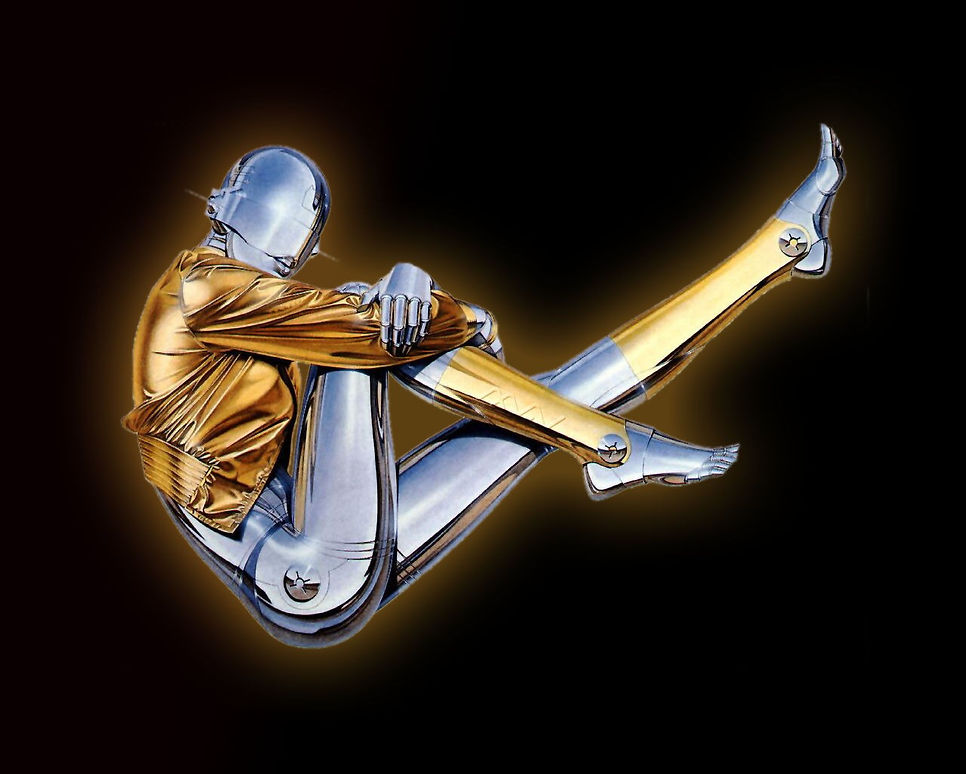
Hajime Sorayama

Hajime Sorayama

Hajime Sorayama

Hajime Sorayama

Hajime Sorayama

Hajime Sorayama

Hajime Sorayama

Hajime Sorayama

Hajime Sorayama

Hajime Sorayama

Hajime Sorayama

Hajime Sorayama

Hajime Sorayama

Hajime Sorayama

Hajime Sorayama
Clyde Caldwell
b.1948

Clyde Caldwell (born February 20, 1948) is an American artist. Self-described as a fantasy illustrator, he is best known for his portrayals of strong, sexy female characters.
With his work at TSR in the 1980s, he is considered one of the artists contributing to fantasy art's "golden age"
Clyde Caldwell

Clyde Caldwell

Clyde Caldwell

Clyde Caldwell

Clyde Caldwell

Clyde Caldwell

Clyde Caldwell

Clyde Caldwell

Clyde Caldwell
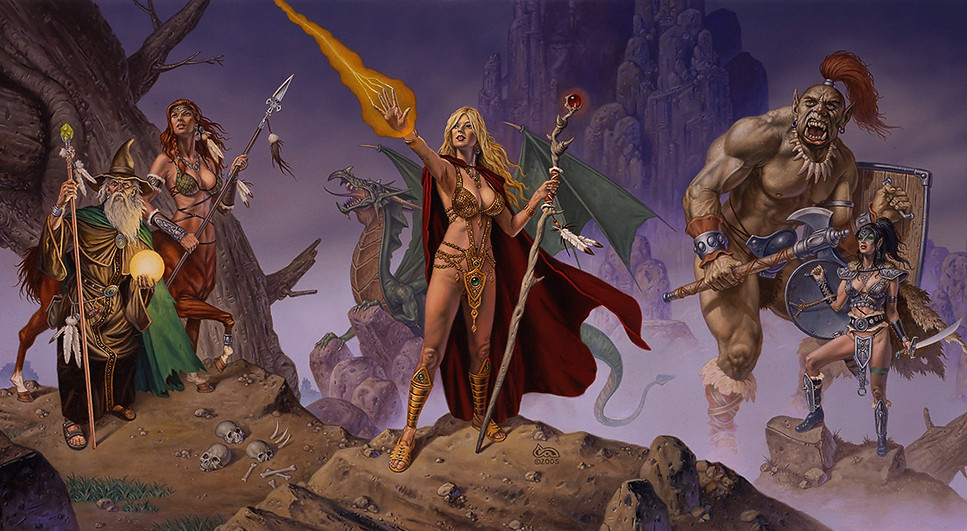
Clyde Caldwell

Clyde Caldwell
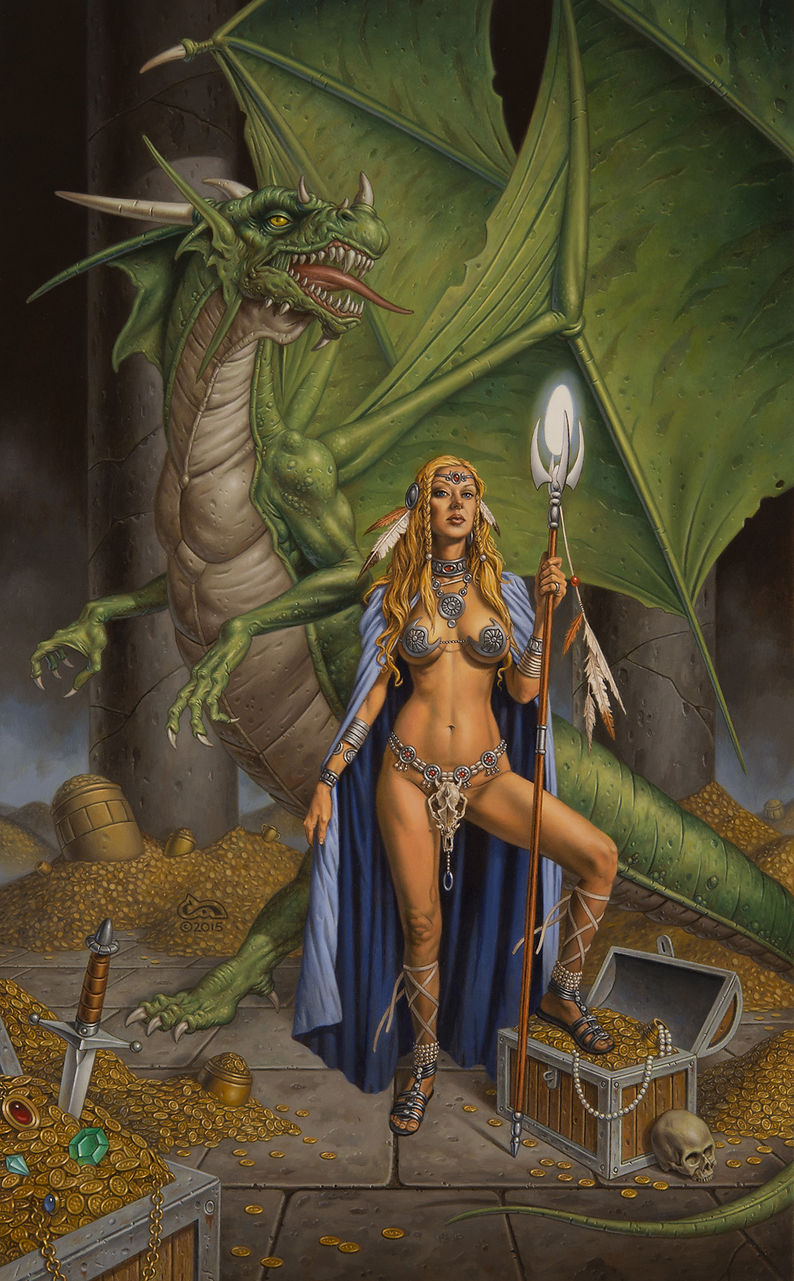
Clyde Caldwell

Clyde Caldwell
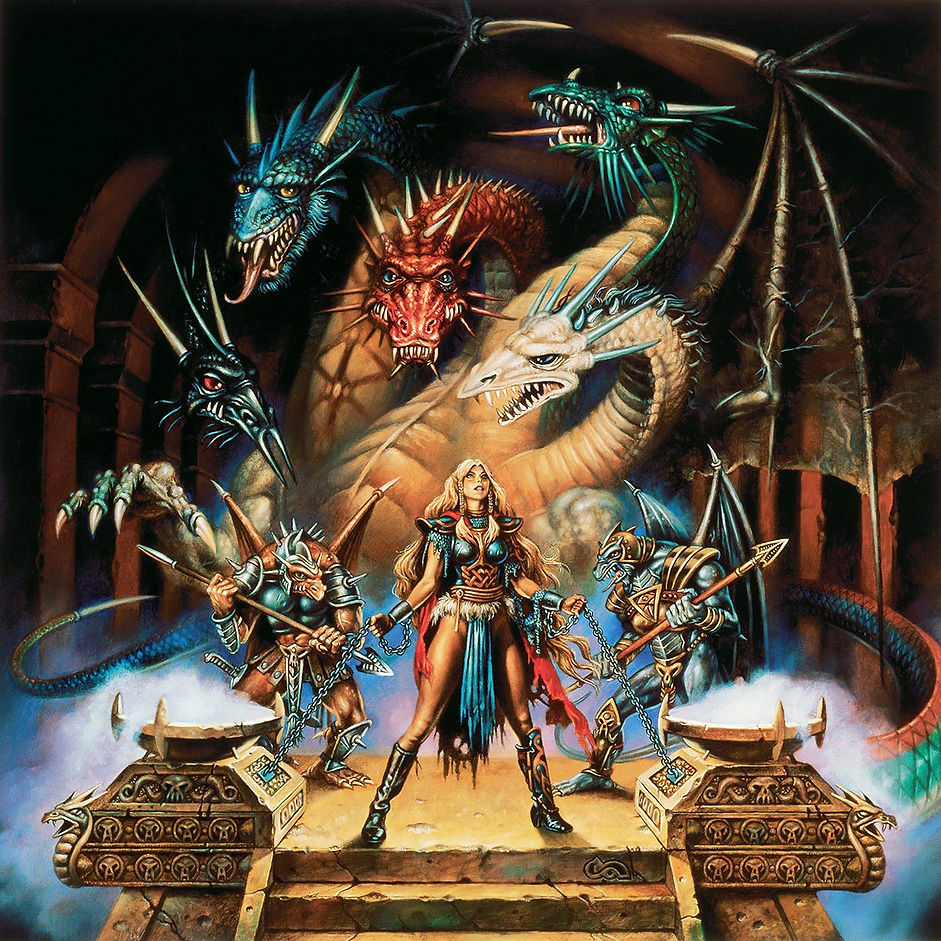
Clyde Caldwell

Clyde Caldwell

Clyde Caldwell
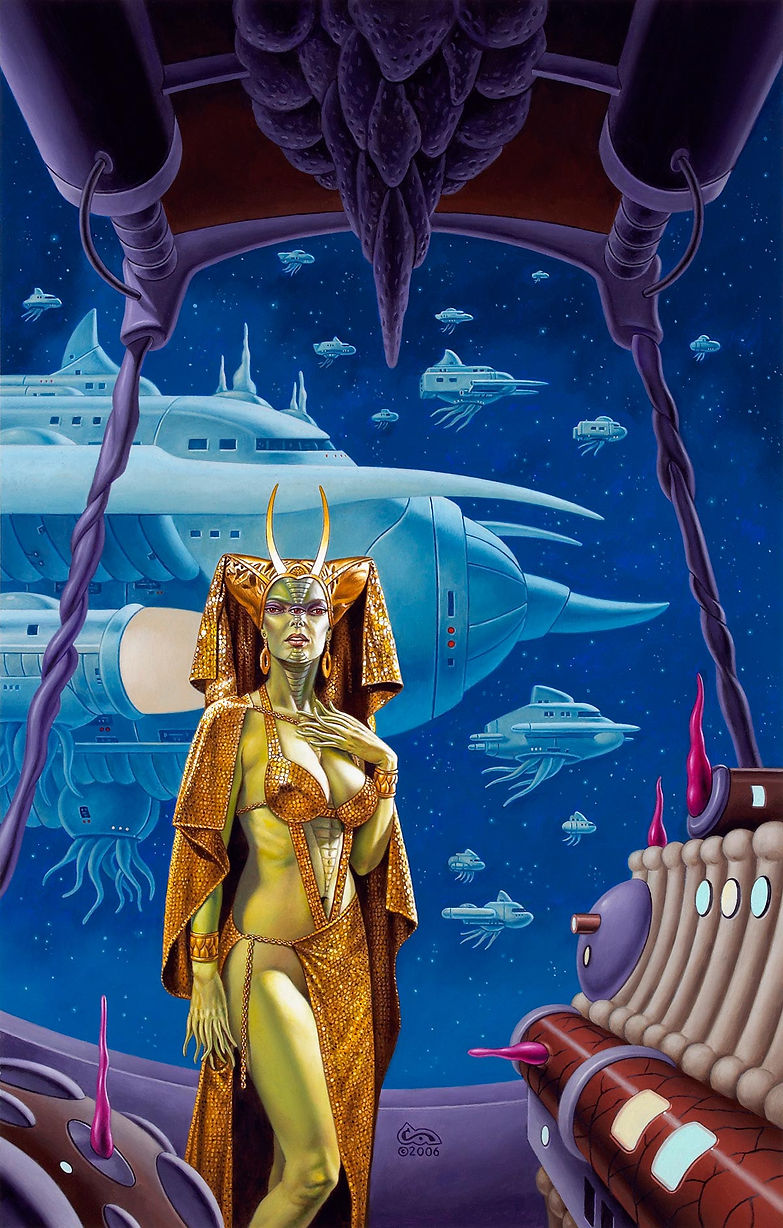
Clyde Caldwell

Clyde Caldwell

Clyde Caldwell

Clyde Caldwell
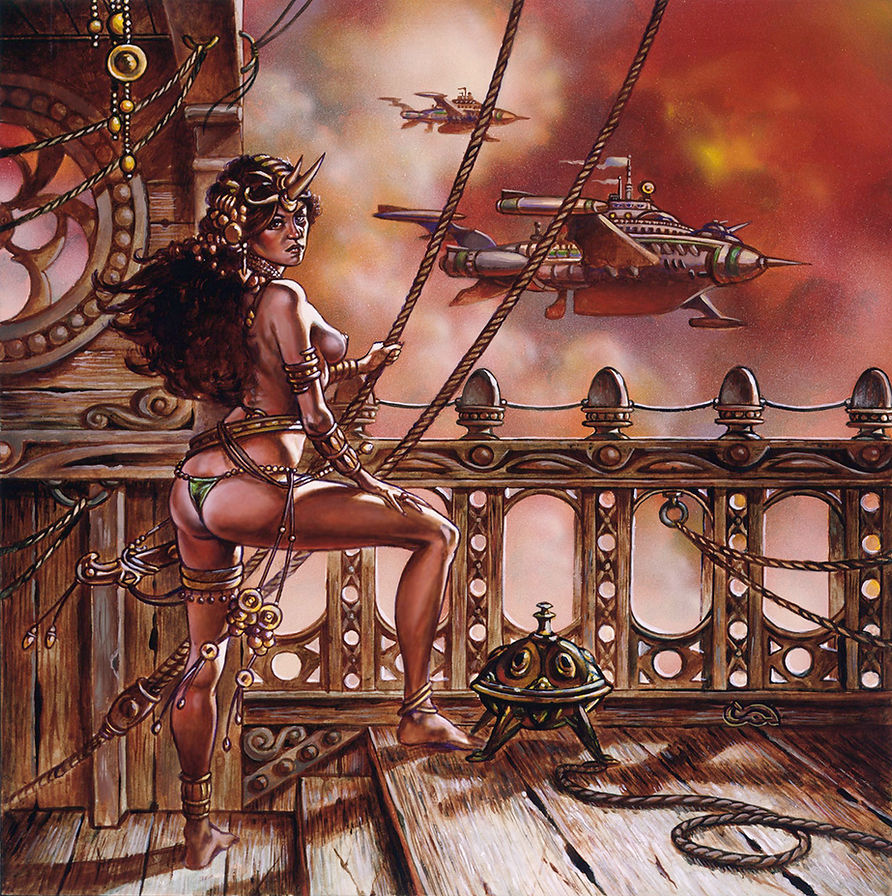
Clyde Caldwell
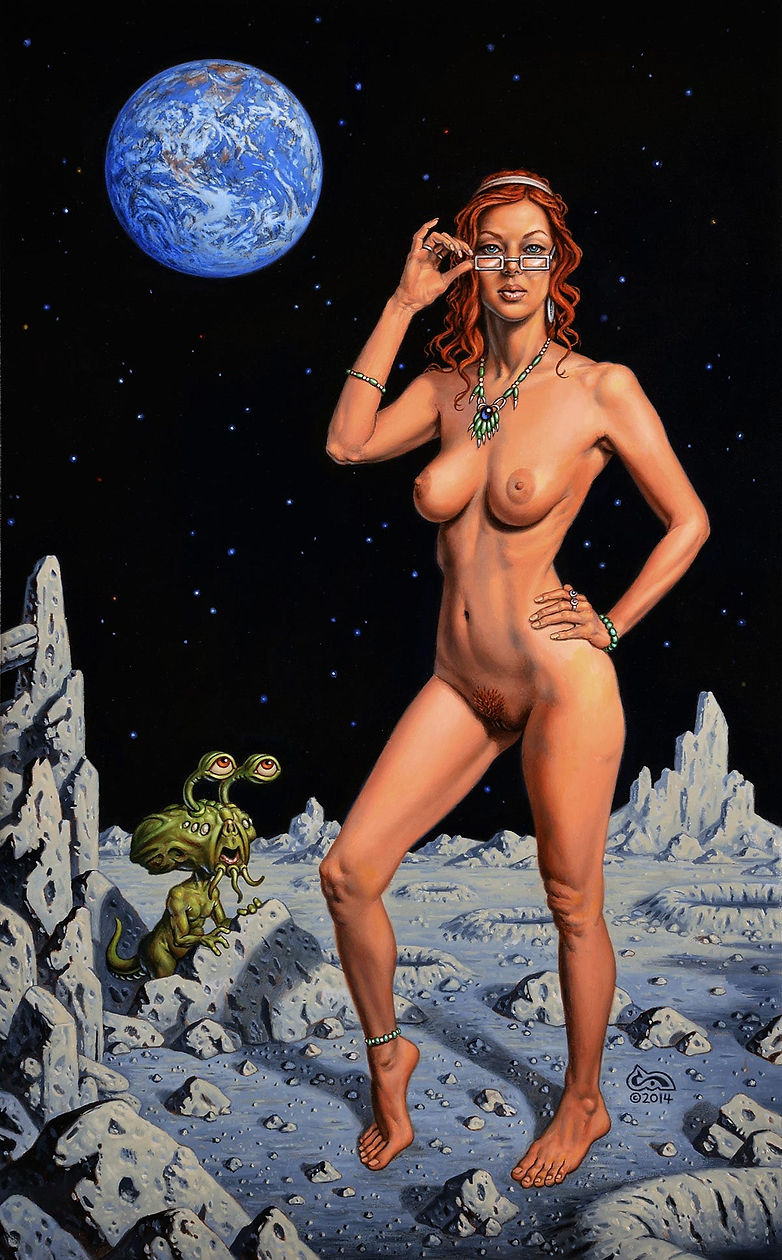
Clyde Caldwell

Clyde Caldwell

Clyde Caldwell

Clyde Caldwell

Clyde Caldwell
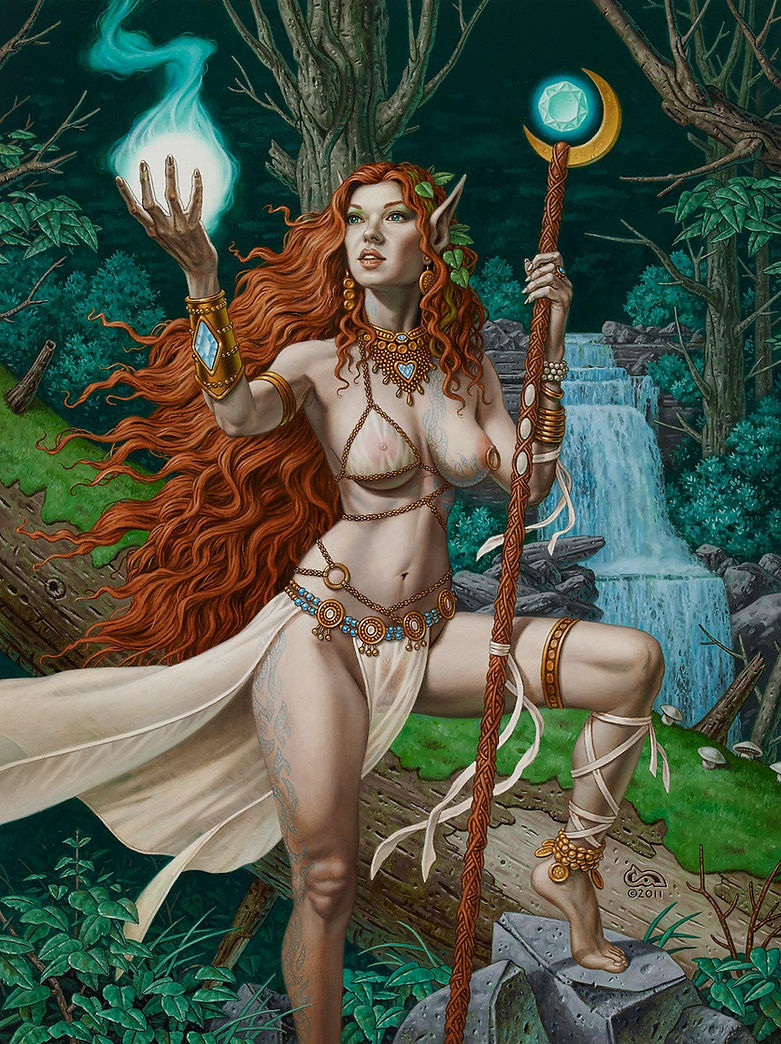
Clyde Caldwell
Luis Royo
b.1954

Luis Royo (born 1954) is a Spanish artist. He is best known for his fantasy illustrations published in numerous art books, magazines such as Heavy Metal and various other media including book and music CD covers, video games and Tarot cards.
Beginning his career as a furniture designer, he was attracted to the comics industry in the late 1970s by the work of artists like Enki Bilal and Moebius, and in 1979 he turned to art as a full-time career. Within a few years, he was publishing art within and on the covers of such magazines as Comix Rambla Internacional, El Vibora, Heavy Metal, National Lampoon, and Comic Art as well as providing cover illustrations for several American publishers.
Luis Royo

Luis Royo

Luis Royo

Luis Royo

Luis Royo

Luis Royo
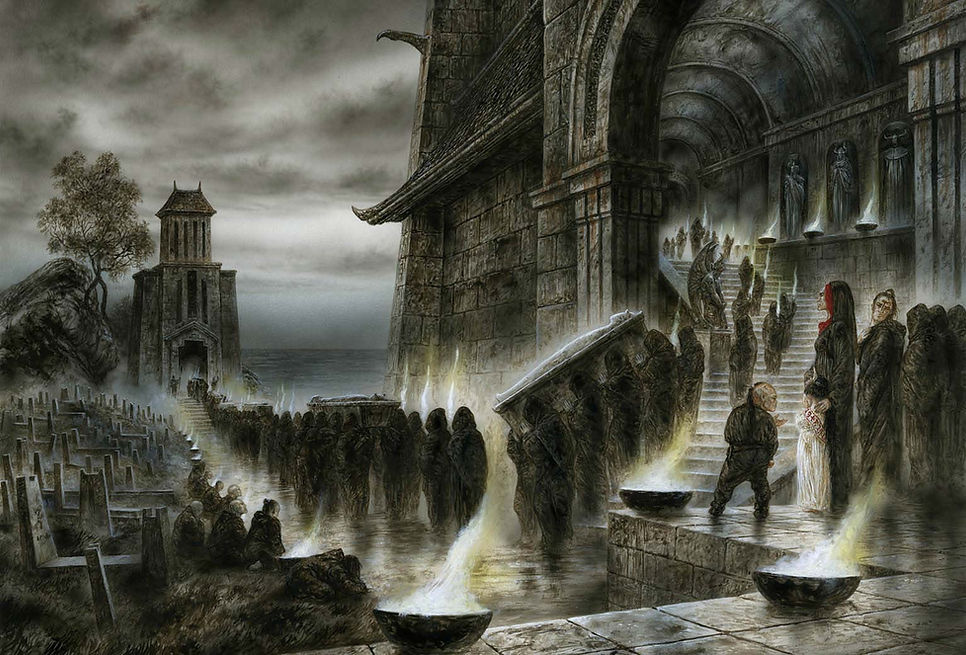
Luis Royo

Luis Royo

Luis Royo
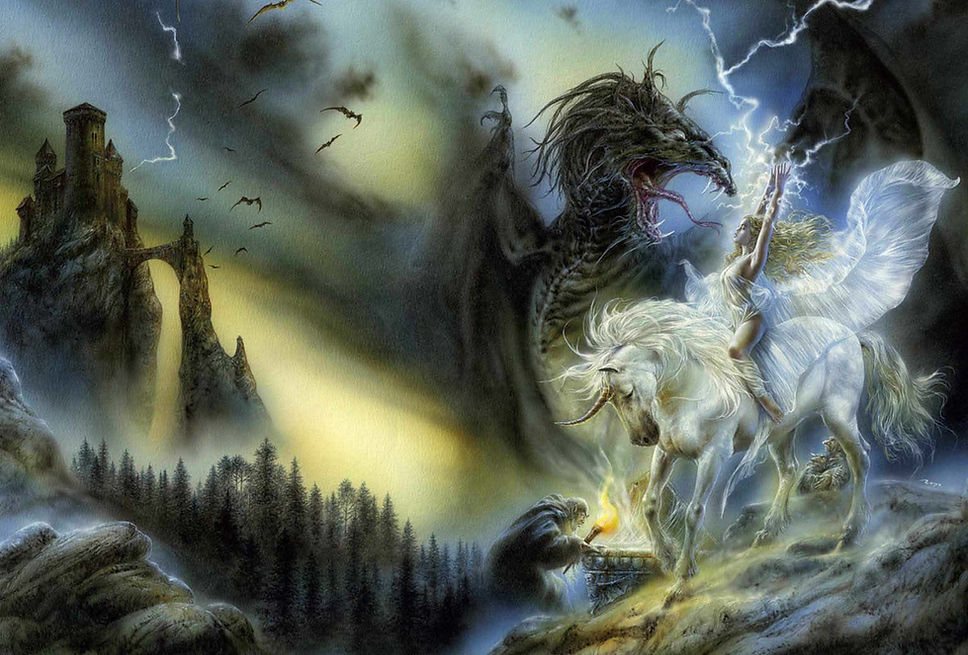
Luis Royo
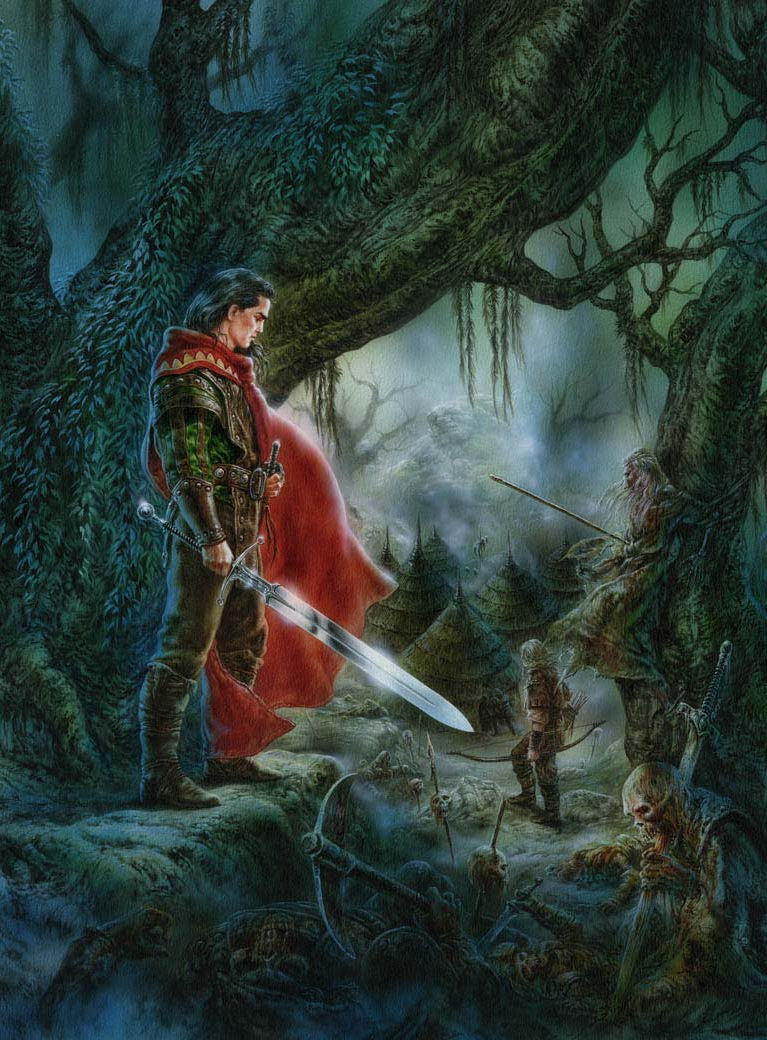
Luis Royo

Luis Royo

Luis Royo

Luis Royo

Luis Royo

Luis Royo

Luis Royo

Luis Royo

Luis Royo

Luis Royo

Luis Royo

Luis Royo

Luis Royo

Luis Royo

Luis Royo
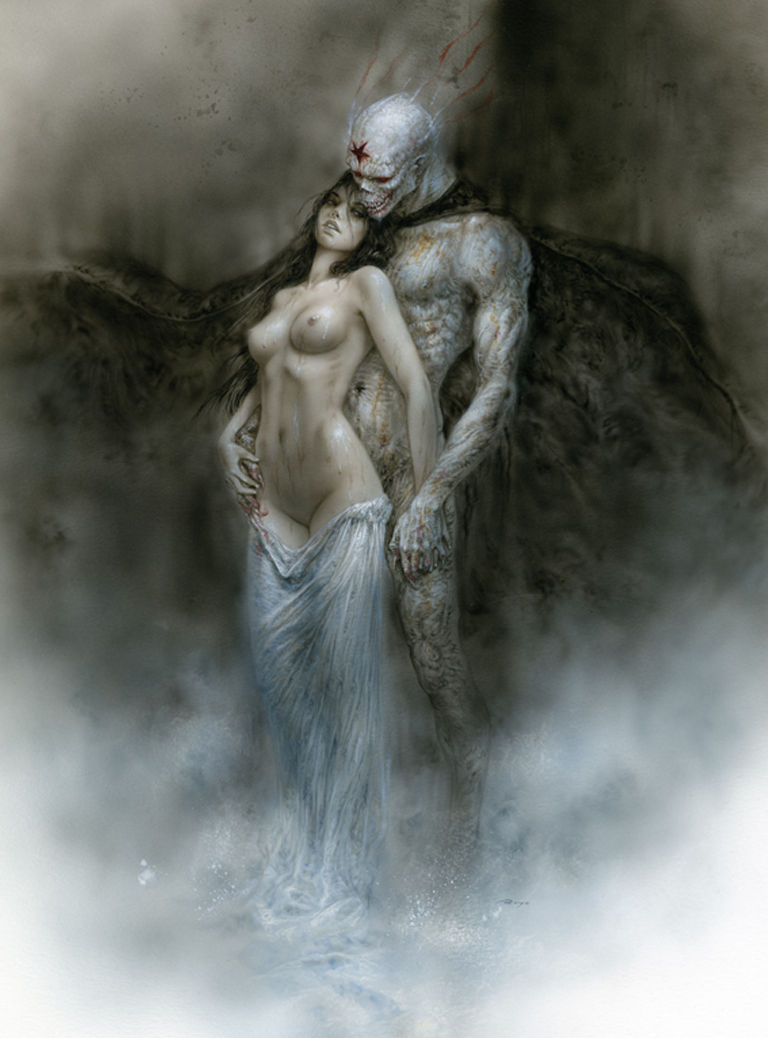
Luis Royo
Dorian Cleavenger
b. 1957

Dorian Cleavenger, b. 1957, exploded onto the fantasy landscape in the later part of the 1990s, gaining huge numbers of fans for his designs of gothic horror and sexy heroes. A comic convention in 1997 changed his life: His skills caught the attention of many leading comic book publishers, and he became an instant success. He has since published several popular books of his art.
Cleavenger's work continues to be displayed in exhibitions, and his classic works are collected around the world. His artwork has attracted side-by-side comparisons with a lot of leaders in the fantasy and erotic art domains, like Vallejo, de Berardinis, Sorayama, and Frazetta.

Darian Cleavenger

Darian Cleavenger

Darian Cleavenger

Darian Cleavenger

Darian Cleavenger

Darian Cleavenger

Darian Cleavenger

Darian Cleavenger

Darian Cleavenger

Darian Cleavenger

Darian Cleavenger


Darian Cleavenger
Darian Cleavenger

Darian Cleavenger

Darian Cleavenger

Darian Cleavenger

Darian Cleavenger

Darian Cleavenger
Julie Bell
b.1958

Julie Bell (born October 21, 1958) is an American fine artist, illustrator, photographer, bodybuilder and wildlife painter. Bell is also a fantasy artist and a representative of the heroic fantasy and fantastic realism genres. Bell has won Chesley Awards and was the designer of the Dragons of Destiny series. She also won first place awards in the Art Renewal Center International Salon, which bestowed on her the title "ARC Living Master".
Julie Bell

Julie Bell

Julie Bell

Julie Bell

Julie Bell

Julie Bell

Julie Bell

Julie Bell

Julie Bell

Julie Bell

Julie Bell
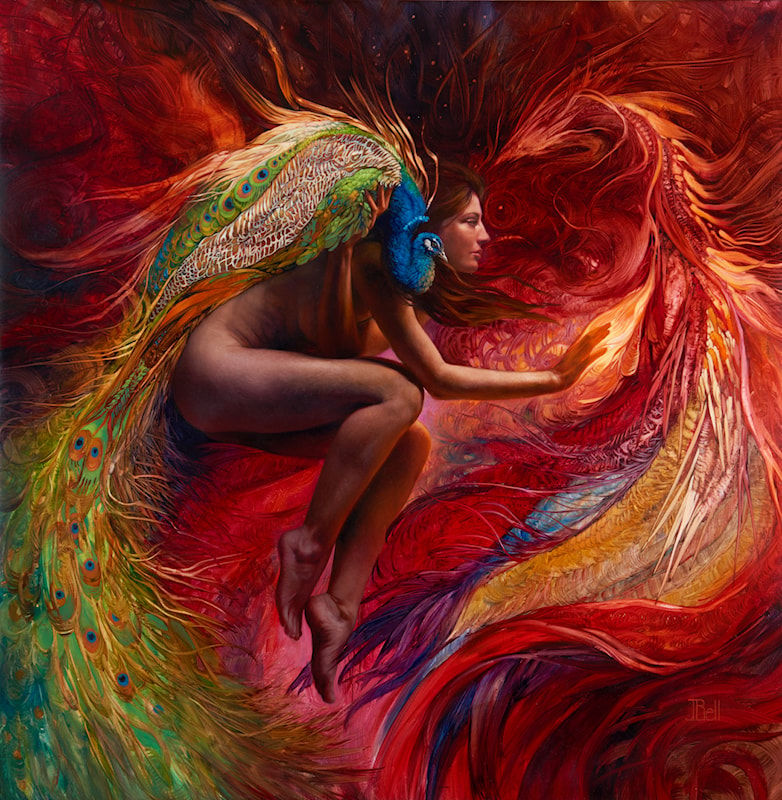
Julie Bell

Julie Bell

Julie Bell

Julie Bell

Julie Bell

Julie Bell
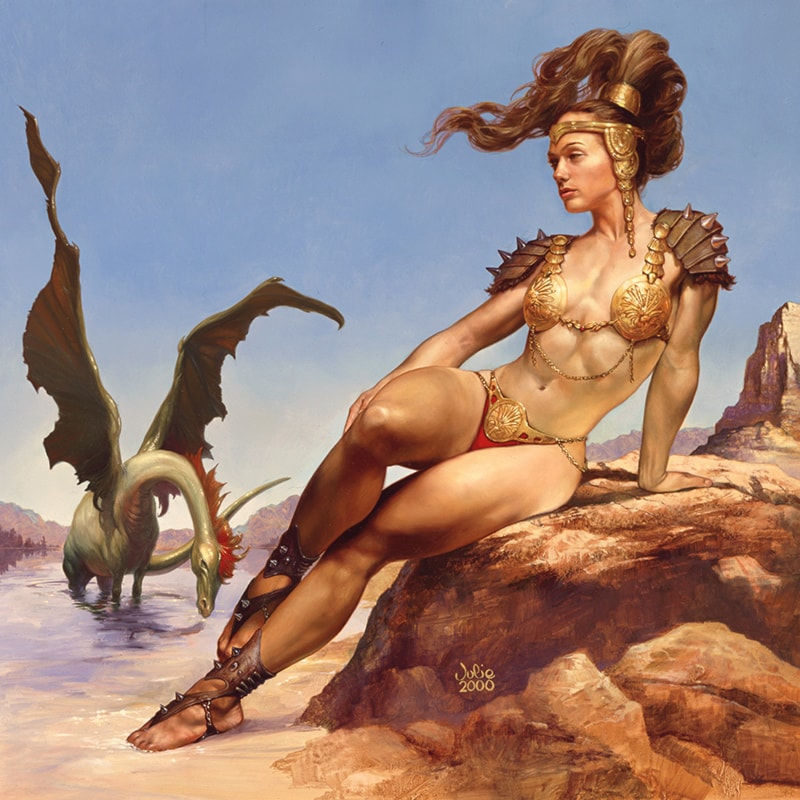
Julie Bell

Julie Bell
Gerald Brom
b.1965

Gerald Brom
Gerald Brom (born March 9, 1965), known professionally as Brom, is an American gothic fantasy artist and illustrator, known for his work in role-playing games, novels, and comics.
Born in the deep dark south in the mid-sixties. Brom, an army brat, spent his entire youth on the move and unabashedly blames living in such places as Japan, Hawaii, Germany, and Alabama for all his afflictions. From his earliest memories Brom has been obsessed with the creation of the weird, the monstrous, and the beautiful.
At age twenty, Brom began working full-time as a commercial illustrator in Atlanta, Georgia. Three years later he entered the field of fantastic art he’d loved his whole life, making his mark developing and illustrating for TSR’s best selling role-playing worlds.
He has since gone on to lend his distinctive vision to all facets of the creative industries, from novels and games, to comics and film. Most recently he’s created a series of award winning horror novels that he both writes and illustrates: The Plucker, an adult children’s book, The Devil’s Rose, a modern western set in Hell, The Child Thief, a gritty, nightmarish retelling of the Peter Pan myth, and his latest concoction, Krampus, the Yule Lord, a tale of revenge between Krampus and Santa set in rural West Virginia.
Brom is currently kept in a dank cellar somewhere in the drizzly Northwest.There he subsists on poison spiders, centipedes, and bad kung-fu flicks.When not eating bugs, he is ever writing, painting, and trying to reach a happy sing-a-long with the many demons dancing about in his head.

Gerald Brom

Gerald Brom

Gerald Brom

Gerald Brom

Gerald Brom

Gerald Brom
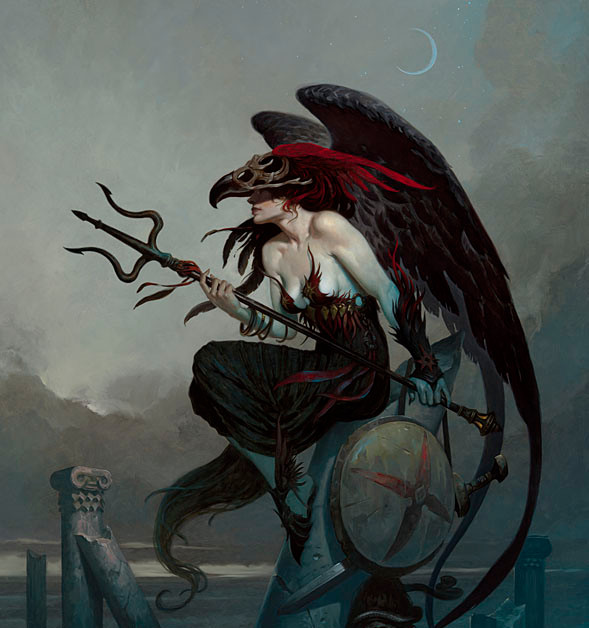
Gerald Brom

Gerald Brom

Gerald Brom

Gerald Brom

Gerald Brom
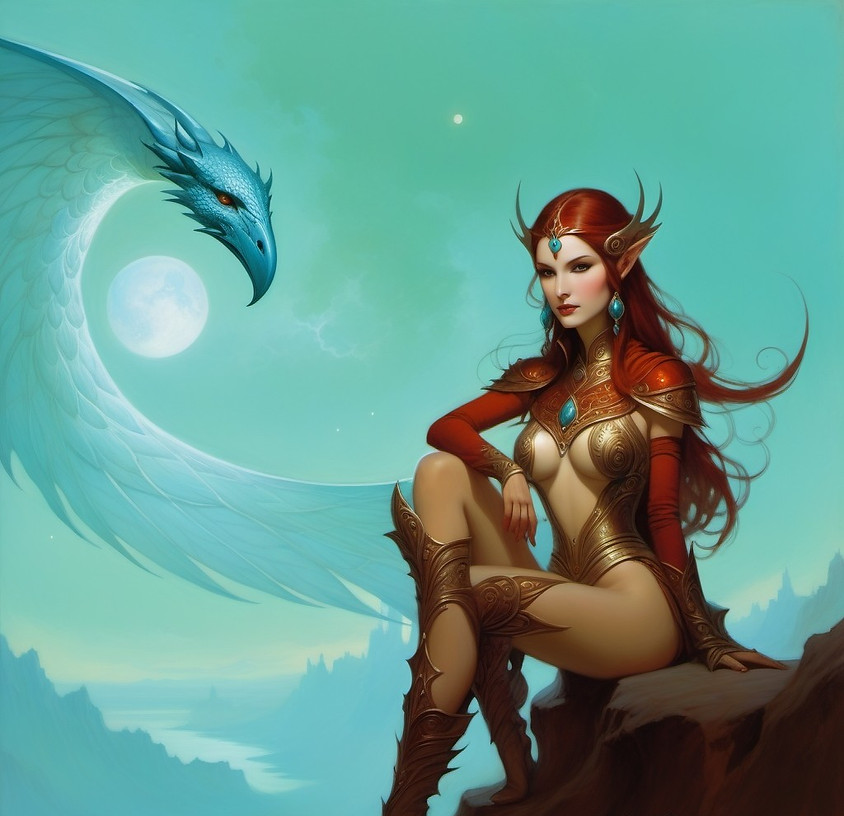
Gerald Brom
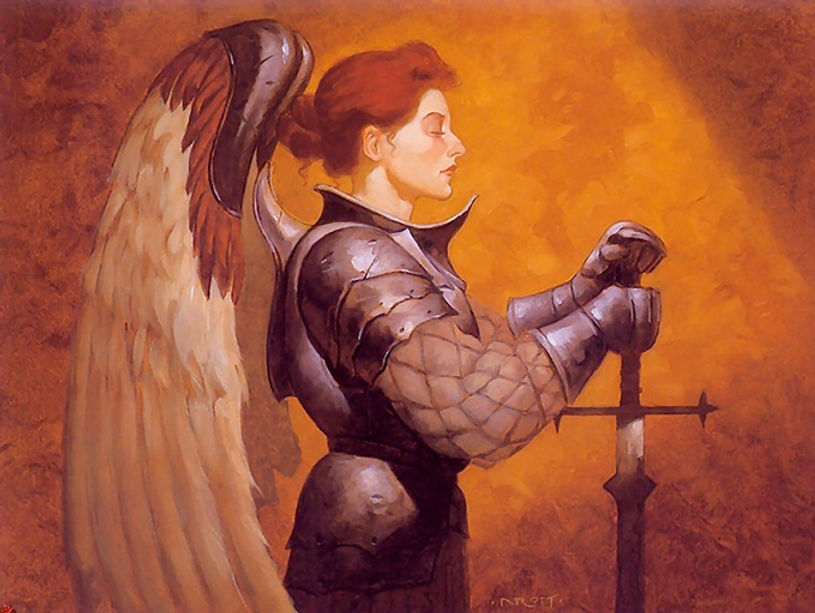
Gerald Brom

Gerald Brom

Gerald Brom

Gerald Brom

Gerald Brom

Gerald Brom
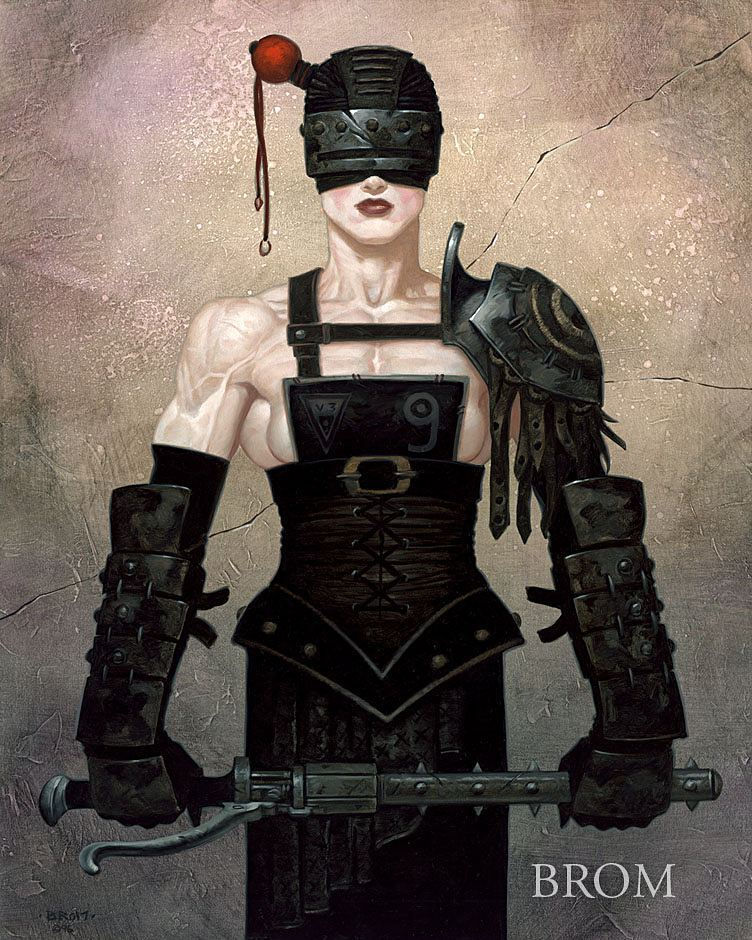
Gerald Brom

Gerald Brom

Gerald Brom

Gerald Brom

Gerald Brom

Gerald Brom
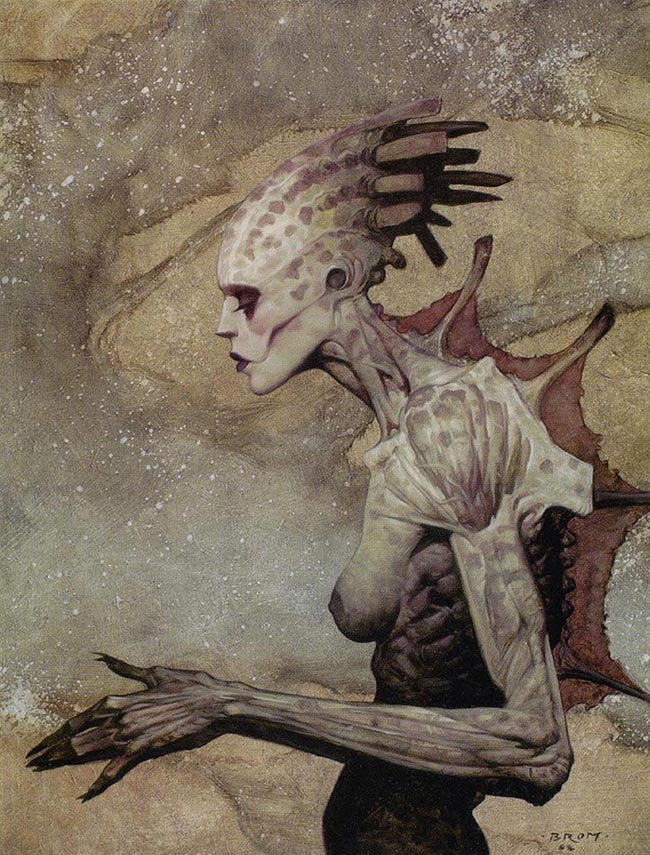
Gerald Brom

Gerald Brom

Gerald Brom

Gerald Brom

Gerald Brom

Gerald Brom

Gerald Brom

Gerald Brom
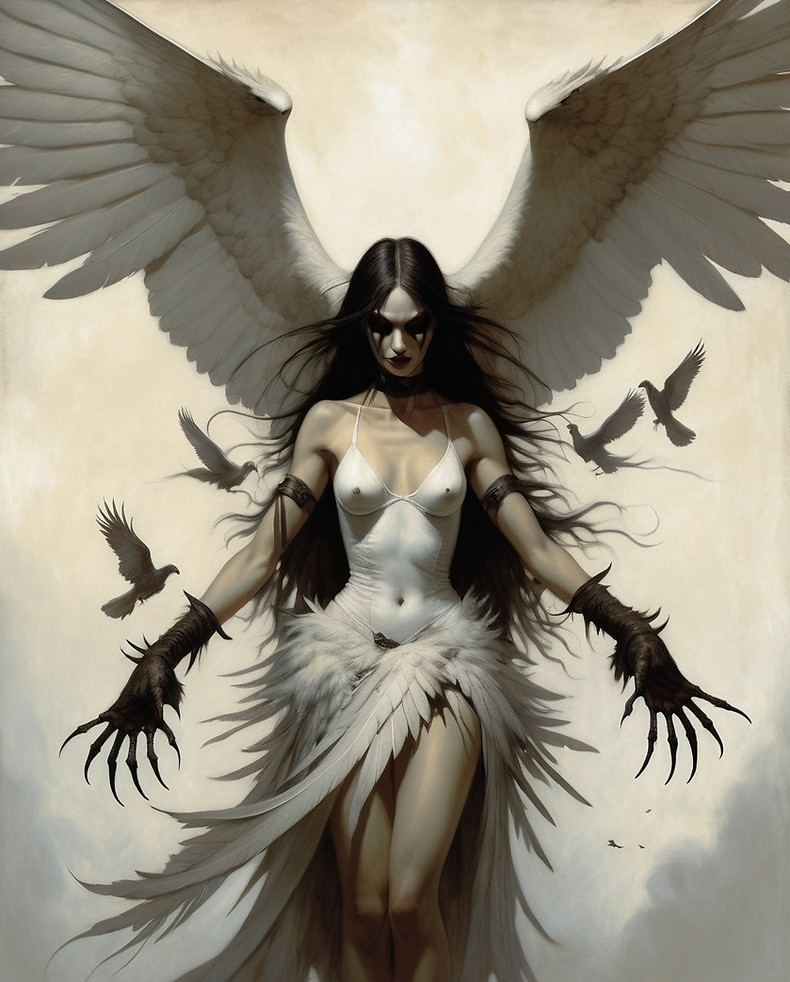
Gerald Brom
Roberto Ferri
b.1978

Roberto Ferri (born 1978) is an Italian artist and painter from Taranto, Italy, who is deeply inspired by Baroque painters (Caravaggio in particular) and other old masters of Romanticism, the Academy, and Symbolism.
Roberto Ferri

Roberto Ferri

Roberto Ferri
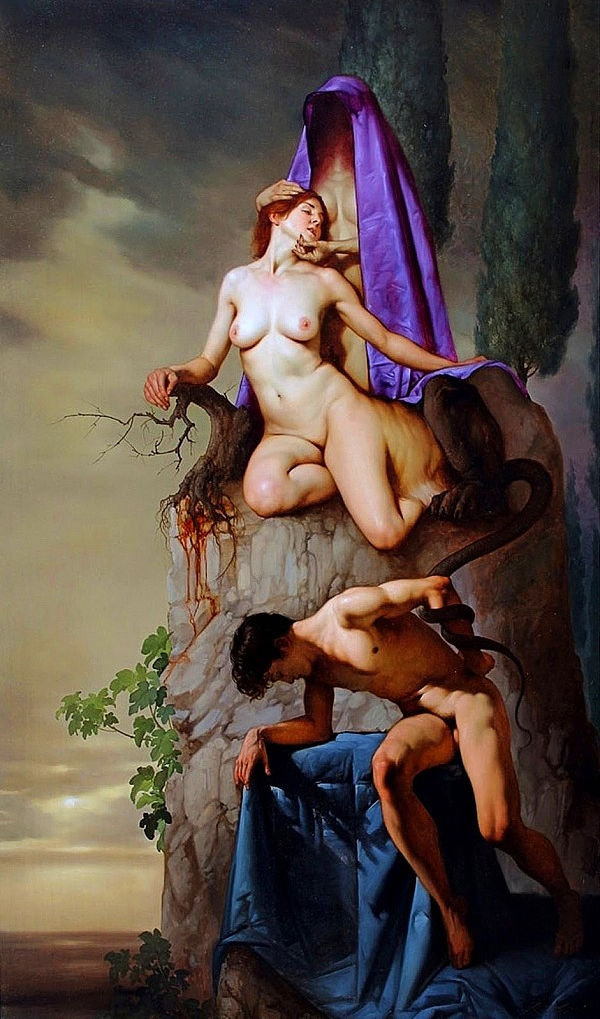
Roberto Ferri

Roberto Ferri

Roberto Ferri

Roberto Ferri

Roberto Ferri

Roberto Ferri
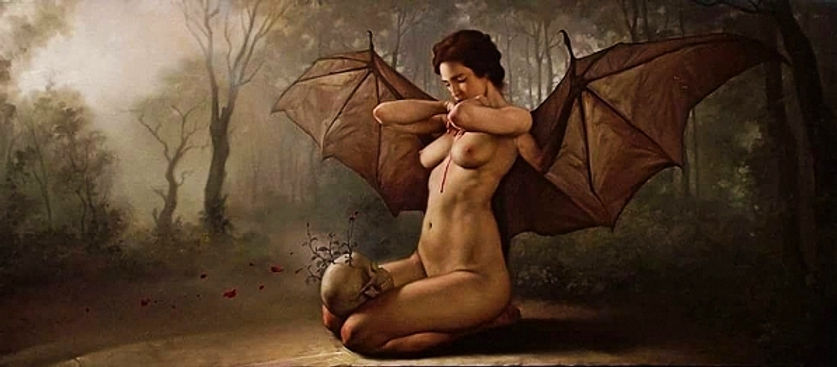
Roberto Ferri

Roberto Ferri

Roberto Ferri

Roberto Ferri

Roberto Ferri

Roberto Ferri

Roberto Ferri

Roberto Ferri
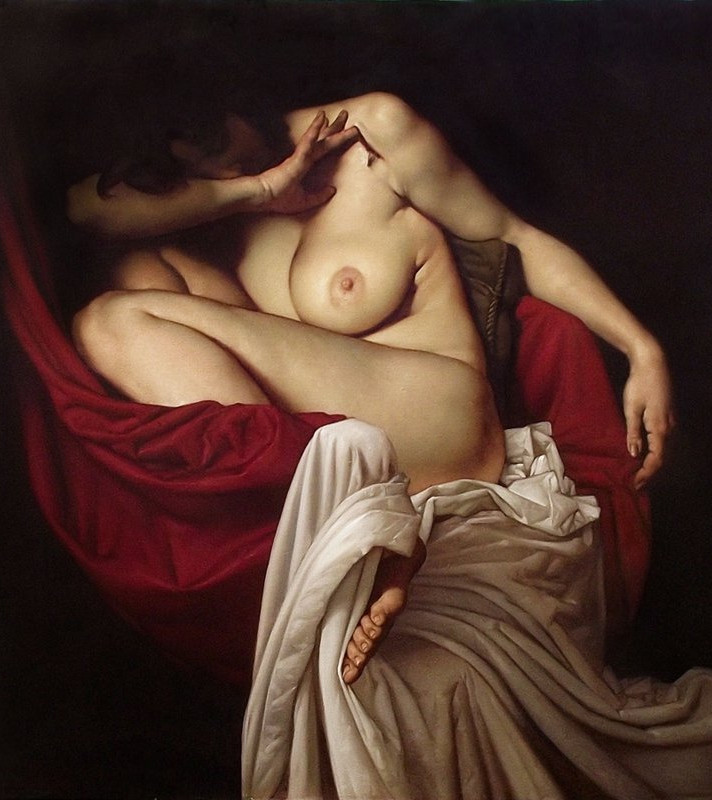
Roberto Ferri

Roberto Ferri

Roberto Ferri

Roberto Ferri

Roberto Ferri

Roberto Ferri

Roberto Ferri

Roberto Ferri
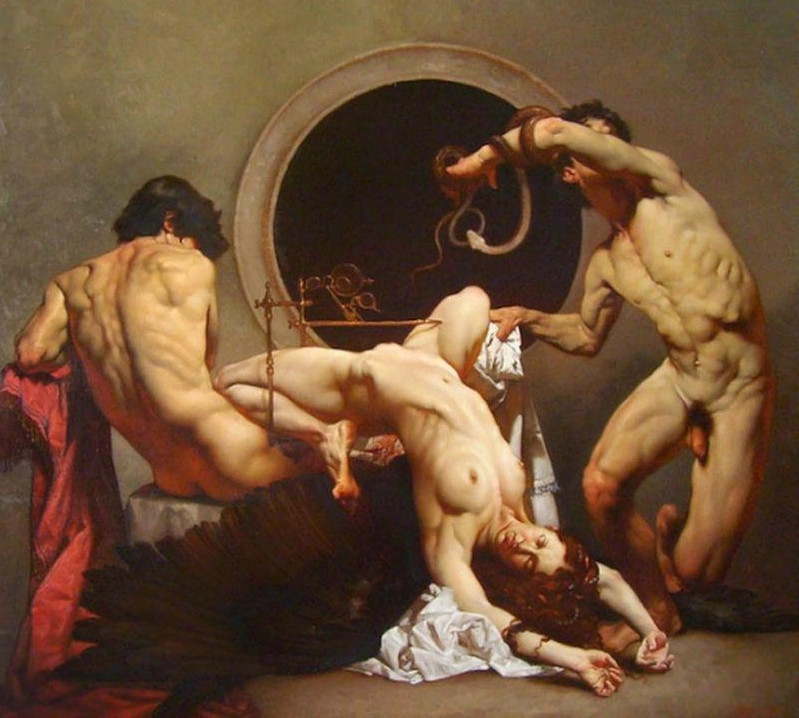
Roberto Ferri

Roberto Ferri